Difference between revisions of "Middlesex"
| Line 889: | Line 889: | ||
* Richard T. Darby, DDGM, [http://masonicgenealogy.com/MediaWiki/index.php?title=MAMarlborough24_1927-2003 District 24 (Marlborough)], 1963, 1964; '''[http://masonicgenealogy.com/MediaWiki/index.php?title=MASuppNecrologiesAG#DARBY.2C_RICHARD_THORN_1914-1999 SN]''' | * Richard T. Darby, DDGM, [http://masonicgenealogy.com/MediaWiki/index.php?title=MAMarlborough24_1927-2003 District 24 (Marlborough)], 1963, 1964; '''[http://masonicgenealogy.com/MediaWiki/index.php?title=MASuppNecrologiesAG#DARBY.2C_RICHARD_THORN_1914-1999 SN]''' | ||
* Francis E. Drake, DDGM, [http://masonicgenealogy.com/MediaWiki/index.php?title=MAMarlborough24_1927-2003 District 24 (Marlborough)], 1953, 1954; '''[http://masonicgenealogy.com/MediaWiki/index.php?title=MANecrologiesAG#DRAKE.2C_FRANCIS_EUGENE_1911-1993 N]''' | * Francis E. Drake, DDGM, [http://masonicgenealogy.com/MediaWiki/index.php?title=MAMarlborough24_1927-2003 District 24 (Marlborough)], 1953, 1954; '''[http://masonicgenealogy.com/MediaWiki/index.php?title=MANecrologiesAG#DRAKE.2C_FRANCIS_EUGENE_1911-1993 N]''' | ||
| − | * ''Paul R. Gaudet'', DDGM, [http://masonicgenealogy.com/MediaWiki/index.php?title=MADISTRICT15N_2003 District 15 North], 2013 | + | * ''Paul R. Gaudet'', DDGM, [http://masonicgenealogy.com/MediaWiki/index.php?title=MADISTRICT15N_2003 District 15 North], 2013, 2014 |
* Jonathan Greenwood, DDGM, [http://masonicgenealogy.com/MediaWiki/index.php?title=MASouthOfBoston4_1834-48 District 4], 1842-1848; [http://masonicgenealogy.com/MediaWiki/index.php?title=MADISTRICT4_1849-66 District 4], 1849-1856; '''[http://masonicgenealogy.com/MediaWiki/index.php?title=MAOtherBrothersG#GREENWOOD.2C_JONATHAN_1801-1885 Memorial]''' | * Jonathan Greenwood, DDGM, [http://masonicgenealogy.com/MediaWiki/index.php?title=MASouthOfBoston4_1834-48 District 4], 1842-1848; [http://masonicgenealogy.com/MediaWiki/index.php?title=MADISTRICT4_1849-66 District 4], 1849-1856; '''[http://masonicgenealogy.com/MediaWiki/index.php?title=MAOtherBrothersG#GREENWOOD.2C_JONATHAN_1801-1885 Memorial]''' | ||
* Jonathan Maynard, DDGM, [http://masonicgenealogy.com/MediaWiki/index.php?title=MAFramingham5_1803-20 District 5 (Framingham, West and North)], 1806, 1807, 1808; '''[http://masonicgenealogy.com/MediaWiki/index.php?title=MASuppNecrologiesHM#MAYNARD.2C_JONATHAN_1752-1835 SN]''' | * Jonathan Maynard, DDGM, [http://masonicgenealogy.com/MediaWiki/index.php?title=MAFramingham5_1803-20 District 5 (Framingham, West and North)], 1806, 1807, 1808; '''[http://masonicgenealogy.com/MediaWiki/index.php?title=MASuppNecrologiesHM#MAYNARD.2C_JONATHAN_1752-1835 SN]''' | ||
Revision as of 16:10, 27 December 2013
Contents
- 1 MIDDLESEX LODGE
- 2 REFERENCES IN GRAND LODGE PROCEEDINGS
- 2.1 ANNIVERSARIES
- 2.2 VISITS BY GRAND MASTER
- 2.3 BY-LAW CHANGES
- 2.4 HISTORY
- 2.5 OTHER
- 2.6 EVENTS
- 2.6.1 OFFICER LIST, DECEMBER 1830
- 2.6.2 FEAST OF ST. JOHN, JUNE 1842
- 2.6.3 INSTALLATION, NOVEMBER 1844
- 2.6.4 INSTALLATION, NOVEMBER 1845
- 2.6.5 FEAST OF ST. JOHN, JUNE 1850
- 2.6.6 FEAST OF ST. JOHN, JUNE 1854
- 2.6.7 OFFICER LIST, JANUARY 1857
- 2.6.8 INSTALLATION, JANUARY 1858
- 2.6.9 FEAST OF ST. JOHN, JUNE 1859
- 2.6.10 HALL DEDICATION, JUNE 1866
- 2.7 GRAND LODGE OFFICERS
- 2.8 DISTRICTS
- 2.9 LINKS
MIDDLESEX LODGE
Location: Framingham
Chartered By: Paul Revere
Charter Date: 06/08/1795 II-69
Precedence Date: 06/08/1795
Current Status: Active
PAST MASTERS
- Jonathan D. Maynard, 1795-1798; © SN
- Peter Cleyes, 1799, 1800
- William Maynard, 1801-1804
- Jotham Brigham, 1805
- Calvin Sanger, 1806, 1807 ©
- James Holbrook, 1808, 1809
- Aaron Whitney, 1810
- Josiah Adams, 1811, 1812; © Memorial
- Enoch Belknap, 1813, 1814
- Isaac Whitney, 1815, 1816
- Charles Train, 1817, 1818
- Nathan Goddard, 1819
- Elijah Clayes, 1820
- Jonas Clayes, 1821, 1822
- Silas Eaton Jr., 1823-1825
- Micah Leland, 1826, 1827 Mem (see below)
- Silas Stone, 1828, 1829, 1830
- Luther Horne, 1831-1833
- Otis Jennings, 1834, 1835
- Luther Horne, 1836
- Uriel Cutler, 1837, 1838
- Jonathan Greenwood, 1839-1842; Mem
- Francis Bowers, 1843
- Joseph O. Skinner, 1844, 1845
- James B. Puffer, 1846
- Edward Holbrook, 1847
- Malachi Babcock, 1846-1850
- Daniel Parmenter, 1851-1853
- Charles R. Train, 1854, 1855 ©
- Charles E. Horne, 1856-1860 ©
- Charles J. Frost, 1861-1865, 1876 ©
- John Blair, 1866, 1867 ©
- Franklin H. Sprague, 1868-1871
- Wilmont H. Chenery, 1872, 1873
- Estus A. Henderson, 1874
- Edger Potter, 1875
- George H. Waterman, 1877-1880
- Edwin Moultrop, 1881, 1882
- William C. Wight, 1883-1887
- Edward Sprague, 1888
- Walter Adams, 1889, 1890
- Arthur D. Leland, 1891, 1892
- William Nicholson, 1893, 1894 ©
- Lauren A. Freeman, 1895, 1896
- Joseph S. Adams, 1897, 1898 ©
- John J. Van Valkenburgh, 1899, 1900; © Mem
- William E. Chenery, 1901, 1902 ©
- Charles O. Heald, 1903, 1904 ©
- Howard M. Taylor, 1905, 1906 ©
- Harry D. Neary, 1907, 1908 ©
- William R. Nicholson, 1909, 1910 ©
- James R. Jones, 1911, 1912 ©
- Frederic M. Kendall, 1913, 1914 ©
- Mark B. Furber, 1915, 1916 ©
- Samuel T. Faulkner, 1917, 1918 ©
- Arthur H. Patch, 1919, 1920 ©
- Elon F. Tandy, 1921, 1922; © Mem
- Matthew B. Hanson, 1923, 1924 ©
- Thomas O. O'Neill, 1925, 1926; © N
- Herbert F. Sears, 1927 ©
- Herbert E. Taylor, 1928; © Mem
- Clarence E. Shaw, 1929 ©
- Robert W. Bell, 1930 ©
- Wheaton S. Caldwell, 1931 ©
- William O. Coady, 1932 ©
- Enoch R. Coldwell, 1933, 1934 ©
- Waldon S. Caldwell, 1935 ©
- Mervin L. Bowden, 1936 ©
- Lyman W. Whitcomb, 1937 ©
- Norman W. Winch, 1938 ©
- Frank E. Barteaux, 1939
- Charles A. Mitchell, 1940
- Raymond L. Hilliard, 1941
- Ralph L. Walkup, 1942 ©
- Harry C. Perkins, 1943
- Francis E. Drake, 1944; © N
- Edmund W. Shaw, 1945 ©
- Alfred C. Blake, 1946
- Gilbert E. McGregor, 1947
- William B. Archer, 1948
- Seymour F. Gilliland, 1949
- Willis B. Drake, 1950
- Edward H. Patton, 1951
- Maxwell A. Clarke, 1952
- William L. Stoddard, Sr., 1953 ©
- Warren R. Roebuck Jr., 1954
- Richard M. Harrington, 1955 ©
- Alexander Turner, 1956 ©
- Harold E. Purington, 1957 ©
- Clarence E. Doney, 1958
- David I. Johnson, 1959 ©
- Ian M. Pyniger, 1960 ©
- Richard T. Darby, 1961; SN
- Wendell S. Whitcomb, 1962 ©
- Earle H. Fletcher, 1963 ©
- Earl J. Dickey, 1964
- Reginald C. Day, 1965
- Hoyd L. Carter, 1966
- Francis L. O'Bryan, 1967 ©
- William L. Stoddard, Jr., 1968, 1985, 2001; © N
- William Kendrick, 1969 ©
- G. Clifford Munzert, 1970 ©
- George L. McGee, 1971 ©
- F. Crawford Reed, 1972 ©
- John G. Moy, 1973, 1991; © N
- John R. MacLean, Jr., 1974
- Holgar S. Svensson, 1975 ©
- Benson B. Murphy, 1976 ©
- Leonard A. Wilson, 1977 ©
- Leonard J. Main, 1978 ©
- Craig H. Reynolds, 1979, 1990
- George H. Brickell, 1980
- Richard W. Heale, 1981, 1987
- Robert M. MacKenzie, 1982 ©
- Anthony M. Colonna, Jr., 1983, 1986 ©
- Vaughn L. Sweezey, 1984 ©
- Philip R. Varney, 1988, 1989 ©
- Richard E. Manelis, 1992; © PDDGM
- Edward A. Sawyer, 1993, 2005, 2006 ©
- George H. Kelleher, 1994 ©
- Charles T. Moses, 1995 ©
- Arnold R. Gilmore, 1996
- Niles E Hill, 1997
- Brian C. Meeks, 1998, 1999
- Joseph E. Guertin, 2000
- Richard L. Menard, 2002-2004
- J. Ilton Lisboa, 2007
- Paul R. Gaudet, 2008, 2009; DDGM
- George Hayeck, 2010
- Alfredo Canhoto, 2011
- Sam Newland, 2012
PAST MASTER PORTRAITS
The following portraits are scanned from display frames in the possession of Middlesex Lodge. Regrettably, many of the early pictures have suffered water damage and are no longer usable. Past Masters shown below are marked with a © in the list above.
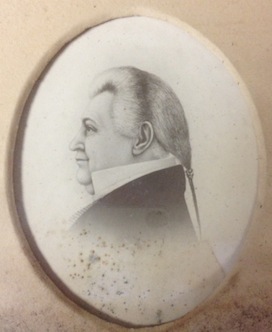
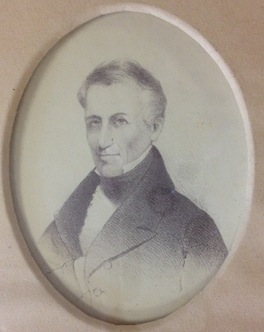
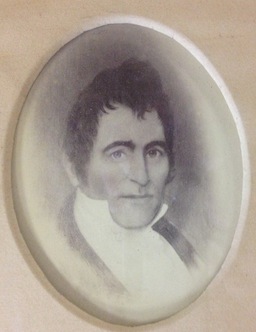
Jonathan Maynard, Calvin Sanger, Josiah Adams
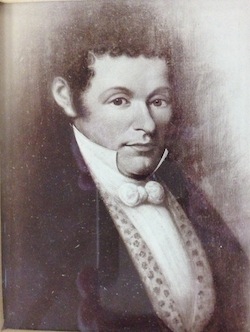
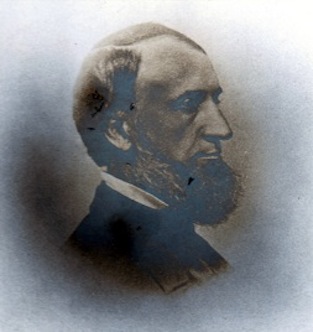
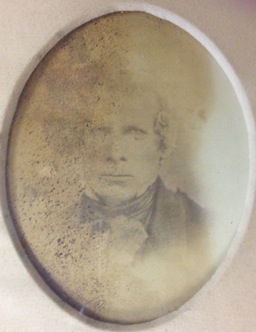
Otis Jennings, Joseph O. Skinner, Daniel Parmenter
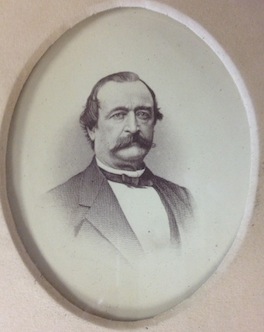
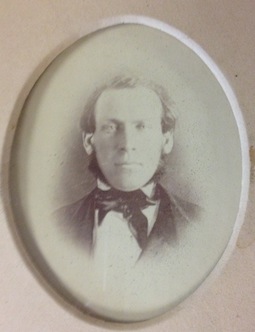
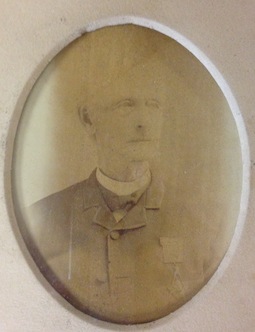
"Charles R. Train, Charles E. Horne, Charles J. Frost
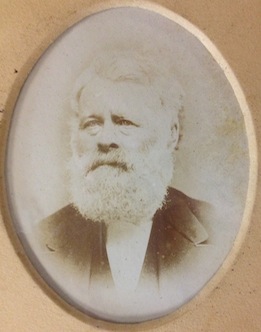
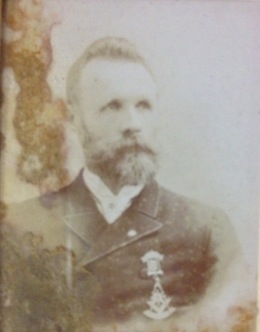
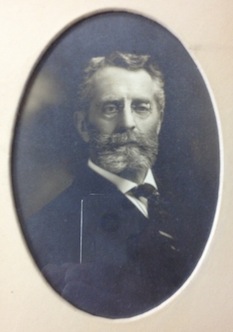
John Blair, William Nicholson, Joseph S. Adams
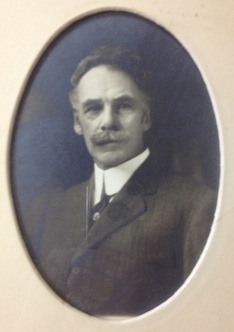
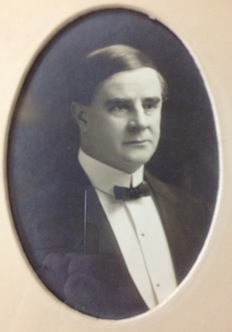
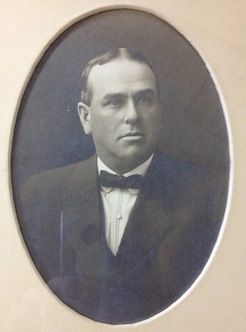
John J. Van Valkenburgh, William E. Chenery, Charles O. Heald
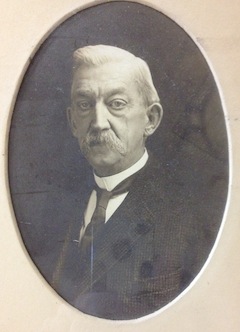
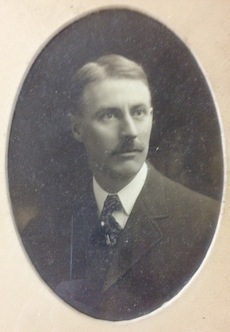
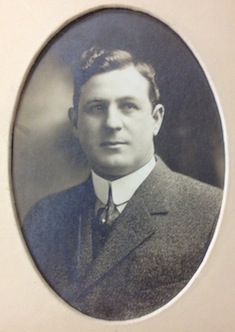
Howard M. Taylor, Harry D. Neary, William R. Nicholson
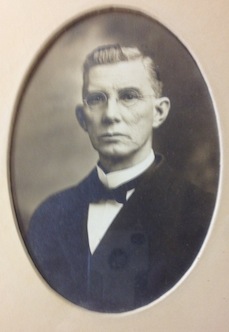
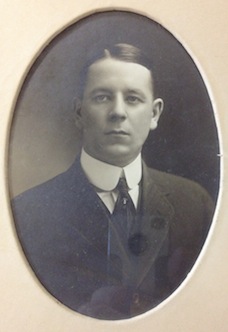
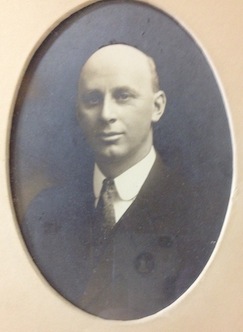
James W. Jones, Frederick M. Kendall, Mark B. Furber
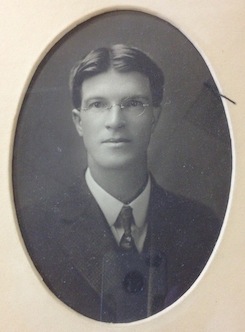
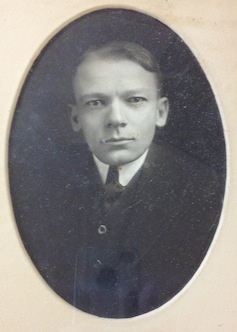
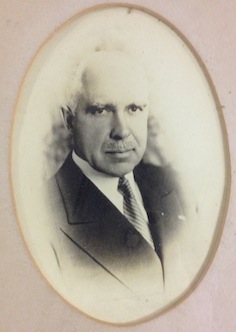
Samuel T. Faulkner, Arthur H. Patch, Elon F. Tandy
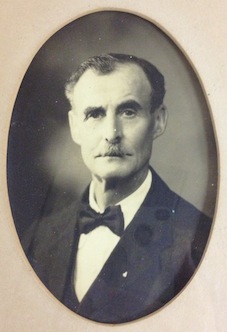
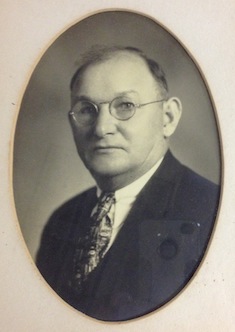
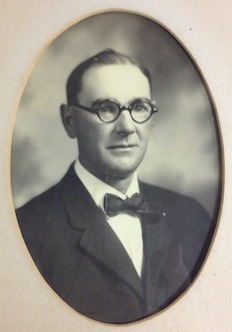
Matthew B. Hanson, Thomas O. O'Neill, Herbert F. Sears
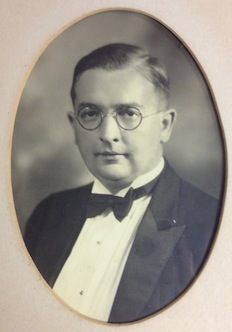
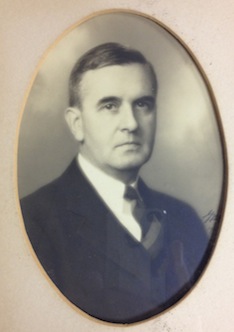
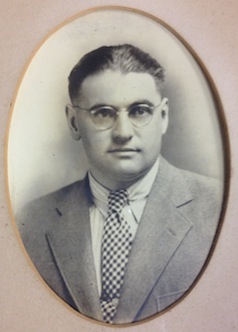
Herbert E. Taylor, Clarence E. Shaw, Robert W. Bell
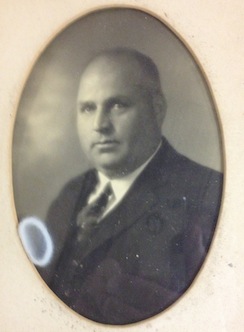
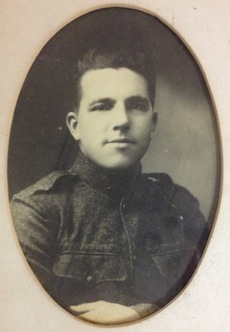
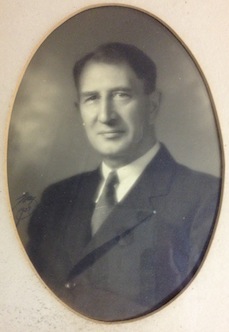
Wheaton S. Caldwell, William O. Coady, Enoch R. Coldwell
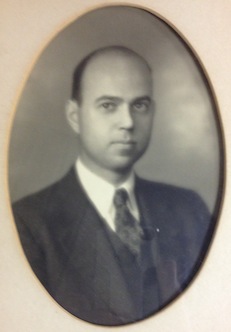
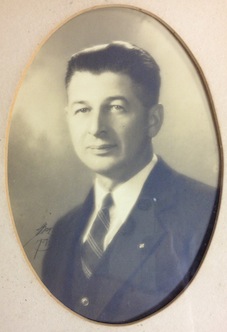
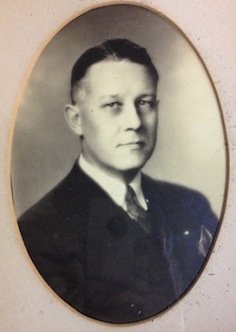
Waldon S. Caldwell, Mervin L. Bowden, Lyman W. Whitcomb
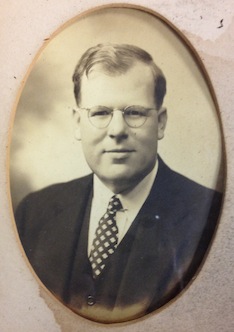
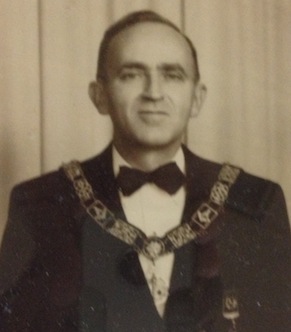
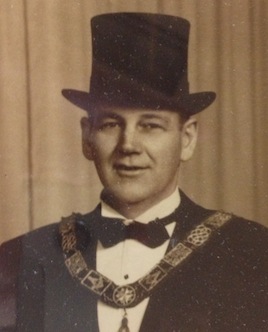
Norman W. Winch, Ralph L. Walkup, Francis E. Drake
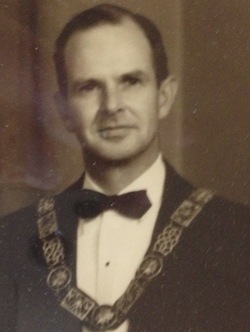
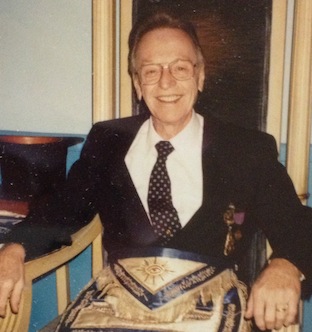
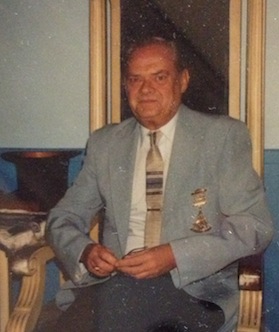
Edmund W. Shaw, William L. Stoddard, Sr., Richard M. Harrington
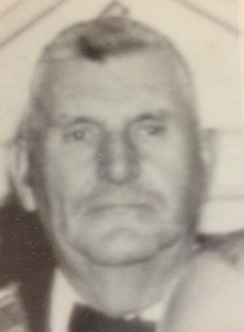
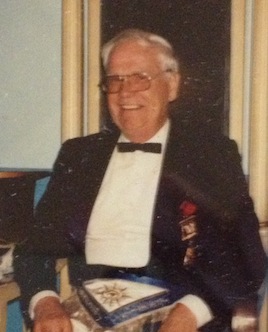
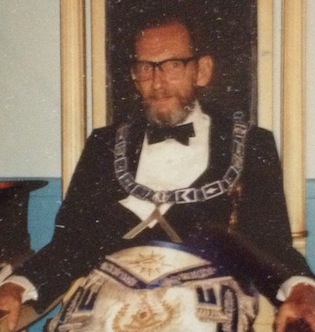
Alexander Turner, Harold E. Purington, David I. Johnson
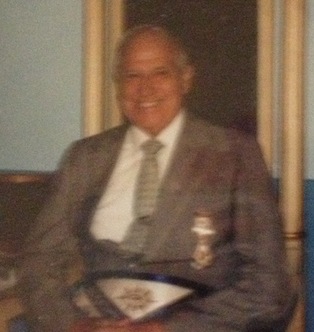
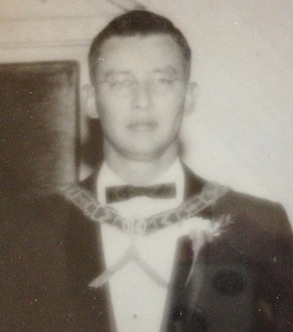
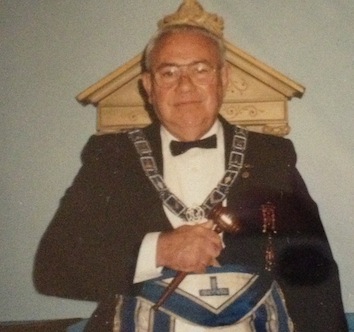
Ian M. Pyniger, Wendell S. Whitcomb, Earle H. Fletcher
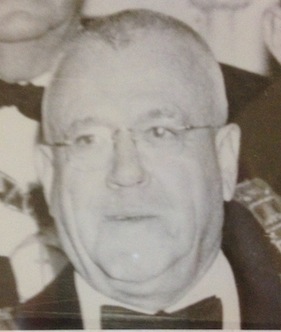
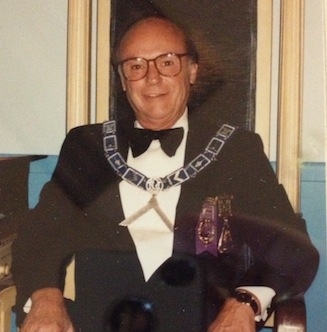
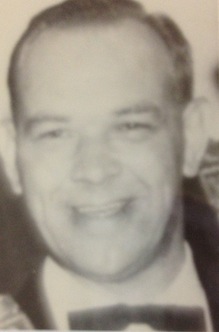
Francis L. O'Bryan, William L. Stoddard, Jr., William Kendrick
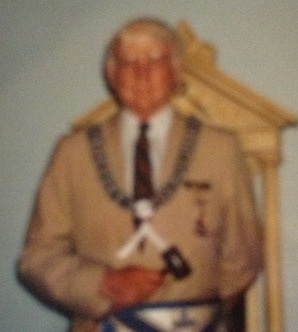
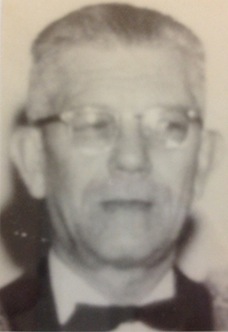
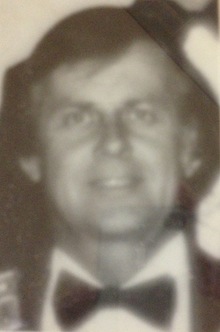
G. Clifford Munzert, George L. McGee, F. Crawford Reed
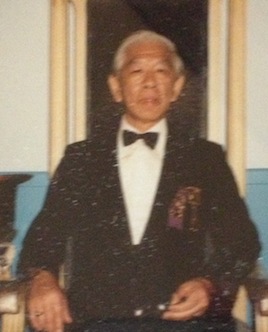
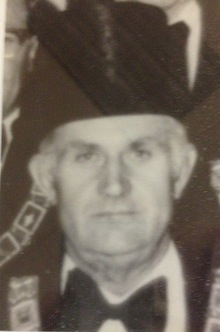
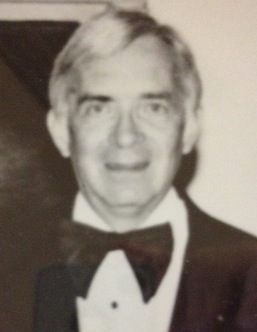
John G. Moy, Holgar S. Svensson, Benson B. Murphy
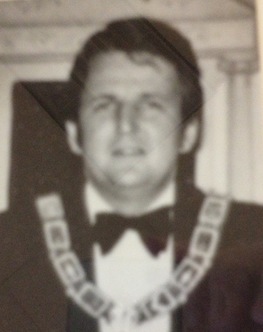
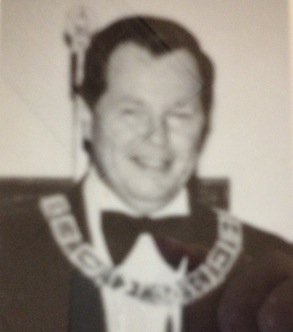
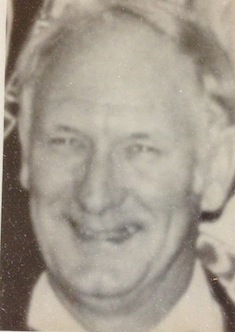
Leonard A. Wilson, Leonard J. Main, Robert M. MacKenzie
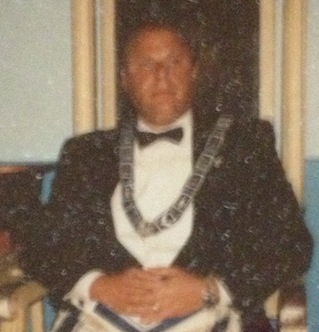
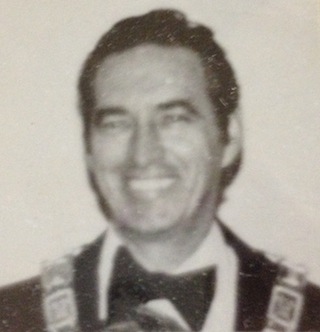
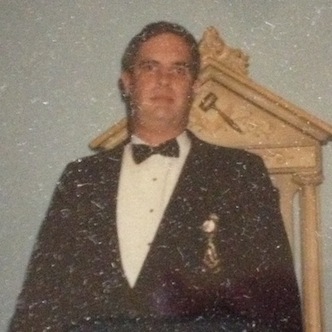
Anthony M. Colonna, Jr., Vaughn L. Sweezey, Philip R. Varney
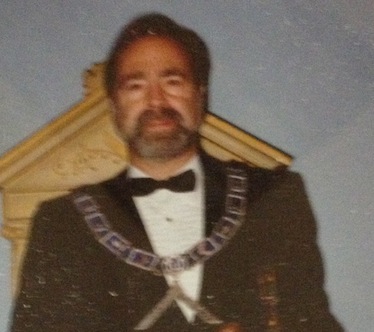
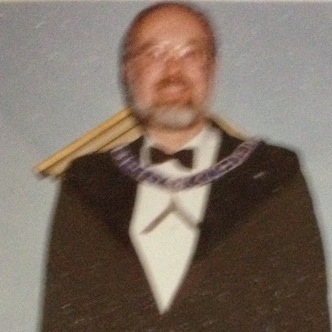
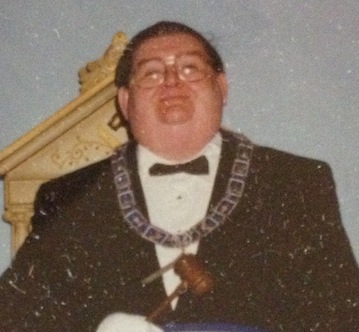
Richard E. Manelis, Edward A. Sawyer, George H. Kelleher
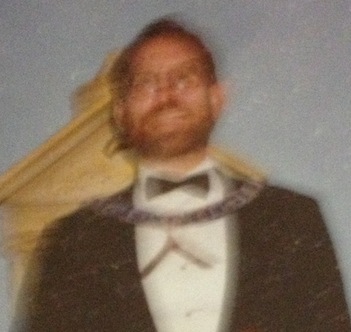
Charles T. Moses
REFERENCES IN GRAND LODGE PROCEEDINGS
- Petition for Charter: 1795
ANNIVERSARIES
- 1845 (50th Anniversary; not in Proceedings; see below)
- 1895 (Centenary)
- 1920 (125th Anniversary)
- 1944 (2000th Communication)
- 1945 (150th Anniversary)
- 1970 (175th Anniversary)
- 1995 (200th Anniversary)
VISITS BY GRAND MASTER
- 1854 (Randall; Feast of St. John)
- 1859 (Heard; Feast of St. John)
- 1866 (Dame; Hall Dedication)
- 1882 (Lawrence)
- 1895 (Holmes; Centenary; Special Communication)
- 1920 (Prince; 125th Anniversary)
- 1928 (Simpson)
- 1934 (Chipman)
- 1939 (Perry)
- 1941 (Schaefer)
- 1944 (A. Coolidge; 2000th Communication)
- 1945 (Wragg; 150th Anniversary; Special Communication)
- 1952 (Roy)
- 1955 (W. Johnson; Cornerstone laying; Special Communication)
- 1956 (W. Johnson; Hall dedication; Special Communication)
- 1970 (Jaynes; 175th Anniversary; Special Communication)
- 1995 (Lovering; 200th Anniversary; Special Communication)
- 2010 (Pageau; Installation)
BY-LAW CHANGES
1905 1910 1913 1916 1922 1925 1927 1933 1943 1948 1949 1971 1974 1976 1977 1979 1982 1959 1963 1965 1968 2004 2007
HISTORY
- 1895 (Centennial Historical Address by Sereno D. Nickerson, 1895-143)
- 1945 (150th Anniversary History, 1945-186)
- 1970 (175th Anniversary History, 1970-306)
- 1995 (200th Anniversary "Summary History", 1995-84)
HISTORICAL REMINISCENCES, MARCH 1867
This essay appears in Moore's Freemason's Monthly, Vol. XXVI, No. 5, March 1867, Pages 149-152, and is written by Rev. Bro. Joseph Oberlin Skinner, a zealous Mason and frequent contributor to Moore's pages during the period of the magazine's publication.
R.W. Brother Moore,—
I ask for a page or two of your worthy and rightly named "Freemason's Monthly Magazine," for the commemoration of my masonic Alma Mater, and of some of the more prominent of the brethren, who gave it character a quarter of a century ago. I may mistake in thinking my reminiscences are worthy of publication. If I do, I know too well the rights of an editor, to think of taking an appeal, for he has full jurisdiction, and is the final judge over a question of this kind. If the notes I have jotted down, from some data which have been long lying in my table-drawer, are too local and insignificant for your great public of readers, perhaps you will at least mail my communication to the present Master of Middlesex Lodge, as a tribute to the memory of brethren whom I formerly knew in that Lodge, and with whom I have often sat in pleasant communion around the altar of Freemasonry.
The charter of Middlesex Lodge bears date June 13, 1795, and, by express grant of the Grand Lodge, was to take precedence from June 9, 1795. The officers of the Grand Lodge at that time were, — Paul Revere, Grand Master; W. Scollay, Deputy Grand Master; Daniel Oliver, Grand Secretary; Richard Sutton, Junior Grand Warden.
The grantees of Middlesex Lodge under the charter were,—Jonathan Maynard, W. M.; Peter Cloyes, S. W.; Bozzillai Bannister, J. W.; Andrew Brown, Treasurer; Samuel Frost, Secretary; Thomas Nixon, S. D. ; Thomas Buckland, J. D.; John Nixon, Benjamin Champney, Winslow Corbet, and Samuel Haven.
The first meeting of the Lodge under the charter was held June 16, 1795. At the second meeting, June 30, 1795, Daniel Gregory, Joseph Bannister, Zedekiah Sawyer, John Hoton (sic), and William Maynard were made entered apprentices, and were the first to take any degrees in the Lodge. The first to take the Master's degree was Samuel Haven, July 21, 1795. One of the oldest, most devoted, and worthy members of the Lodge at the time of my initiation, in 1810, was Br. John B. Kittridge, M.D. He was proposed for initiation July 21, balloted for Aug. 4, initiated (with Aaron Edgell) Aug. 18, passed and raised Nov. 5, and admitted a member of the Lodge Dec. 17, 1795. At the time of his death he was the oldest member and the oldest Mason (made in the Lodge) then on the stage. Twelve Masons had, however, been made in this Lodge before him.
The first quarterly returns ever made to the Grand Lodge were dated Dec. 12, 1796 ; from which it appears that eleven Masons had been made since its institution. The quarterly returns made May 21, 1797, show that thirty-seven Masons had been made in all up to that date. In 1845 the records of the Lodge showed that there had been two hundred and ninety-eight initiations, two hundred and eighty-nine had received the second degree, two hundred and seventy-six had been made Master Masons, and one hundred and forty-four been admitted to membership, since the foundation of the Lodge. Some initiations had taken place every year after it was chartered until 1830; after that year there were no additions to the Lodge and no work done until 1833, when one initiation took place, and none after that until 1839. Only one man was admitted to the rights and privileges of the fraternity in Middlesex Lodge from 1830 to 1839, and he, strangely and mortifying enough, was Francis K. Gourgas, who afterwards became a violent antimason.
The four oldest living members of the Lodge in 1845 were,—Dr. John B. Kittridge of Framingham, made Aug. 18, 1795; Hon. Elihu Cutler of Holliston, made July 17, 1798; Col. Timothy Eames of Framingham, made June 17, 1800; and Urial Cutler of Holliston, made June 23, 1801.
Col. Eames had a somewhat remarkable masonic history. He was born Sept. 9, 1762, made a Mason June 17, 1800 (at the age of thirty-eight), chosen Steward of the Lodge March 24, 1801, Tyler, Dee. 9, 1802, serving then only a single term. In 1807 he was again appointed Tyler, and con tinued to be Tyler, and to discharge the duties of the office until his death, which occurred, I think, in 1843, i.e., for the extraordinarily long period of thirty-six years. And, what is most wonderful, involving his continuous good health, fixedness of habits, and devotion to Freemasonry, he was never absent in all that period (the length of an ordinary generation) from a single regular meeting of the Lodge.
It is to be mentioned, to the great praise of Middlesex Lodge, that, notwithstanding all work was at a stand-still from 1830 to 1839, with the lamentable exception above named of one who was initiated in 1833, and who lifted up his heel against us, yet the Lodge never omitted to hold its annual meetings, elect its officers, and hold its organization intact and in order for work. With admirable steadiness and praiseworthy fidelity it weathered the storm of political antimasonry, and when more peaceful times came, it quietly resumed its work. It has been a pillar of strength to Freemasonry, and, in various ways, has exerted a most salutary influence over its individual members. On its rolls may be found the names of clergymen, lawyers, physicians, farmers, and mechanics, men of all religious creeds, and of such as stood high in the community, and did honor to their several callings and respective denominations.
It will be twenty-seven years next April since I was made a Mason in Middlesex Lodge. Though I have not met with the Lodge for more than twenty years, yet for some six years after my initiation I was a pretty regular attendant on its meetings, and for- four years was an officer, having served in the S., W., and E. The meetings of the Lodge, during my connection with it, were held in the upper story of the village academy, which was a very inconvenient place, on account of the work involved in removing the school furniture on every meeting of the Lodge, and bringing out from a closet the proper furniture of the Lodge, and of storing it away again after every communication.
But there was one faithful brother (Dea. Jonathan Greenwood), who had identified himself with Freemasonry, and needed not the stimulus of official honor and responsibility to induce him to work for the good of the Lodge; who, though not a young man, nor living within two miles or more from the Lodge, yet, his soul, being in the work, was ever faithful, punctual, and zealous ; who found his meat and drink in laboring in season and out of season for the prosperity of the Lodge; who was always present at its communications, at all seasons and in all weathers, — for cold and hot, wet and dry made no difference with him; and whether officer or private, he was usually the first at the hall and the last to leave it; and all this from the interest he felt in the institution of Freemasonry. Without hope or promise of fee or reward he would voluntarily and gratuitously put the Lodge-room in order, and assist in any part of the work, and was ready and well qualified in every step and branch of blue Masonry. His ready wit and genial humor and unsullied honor made him a pillar in our masonic edifice. To any one whose memory runs back to the period of which I speak, as does yours, Mr. Editor, and mine, it is unnecessary to produce vouchers for what I say of this brother. If he is above the sod, as I hope and trust that he is, I crave his forgiveness for this mention of him, and pray for his long continuance on this side of the dark valley. He presided at my initiation, and at every subsequent step of my advancement in the Lodge; and from that time onward my acquaintance with him was most pleasant.
Another brother not now in the flesh (Rev. Charles Train), belonged to Middlesex Lodge, whose voice I heard in prayer before I ever saw the inside of the Lodge; whose record is clear and honorable as a minister of the gospel, as a Mason, and as a man; whose amiable character, unfeigned piety, genial spirit, and gentlemanly manners have given him a warm place in the hearts of his brethren. He was a graduate of Harvard College, and for a long period the faithful and esteemed pastor of the Baptist Church in Framingham. Previous to entering into that office he was Principal of the Academy in that village. He was made a Mason Jan. 31, 1809. Him, too, you know, Mr. Editor, and knowing him, you know an honest, true man, and a genuine Christian. Though of a different theological creed from myself, yet, during all the period of our acquaintance, — three years and a half being on the School Committee together,—I never knew him to depart from the line of rectitude and brotherly kindness; nor was there ever the slightest discord, misunderstanding, or unpleasantness between us.
He was a zealous Freemason, and was never frightened into deserting the fraternity, betraying his trust, or relinquishing his rights as a citizen and a man at the behest of political crusaders, who sought by violence and denunciation to crush out Freemasonry and its adherents. On being requested by some antimasons in his parish to renounce Freemasonry, he told them he could not do that to get anybody's good-will, because it would involve his own dishonor; but he would leave them, if they desired it, and go into some other field of labor; and accordingly did start off quite soon into a neighboring State. But it was not long before his Church recovered their reason, and sent for him to return and resume his pastoral labors with them. That was the last time that Satan tempted him in that way. He was as modest and unassuming in exercising his masonic rights, enjoying his masonic privileges, as he was firm in his fidelity to his engagements, and unshaken in his purpose of resistance to an irrational and headlong fanaticism. Peace and honor rest with his now beatified spirit. I never knew a man I more sincerely respected and loved. He never had a personal enemy, I believe, in his whole life.
Time will fail me to speak of others, of whom I have pleasant recollections, — Rev. William Barry, Hon. Charles R. Train (son of the above), and yet others, living and dead, and will now close with the fraternal salutation of,
Yours truly, J. O. S.
Malone, N.Y., Feb. 12, 1867.
OTHER
- 1819 (Report on reconciliation, III-242)
- 1850 (Invitation to Grand Lodge to attend Feast of St. John, accepted; V-280; see below )
- 1854 (Invitation to Grand Lodge to attend Feast of St. John, accepted; V-521)
- 1859 (Invitation to Grand Lodge to attend Feast of St. John, accepted; VI-253)
- 1936 (Reduction of fees approved, 1936-248)
EVENTS
OFFICER LIST, DECEMBER 1830
From Boston Masonic Mirror, New Series, Vol. 2, No. 25, December 18, 1830, Page 194:
"Mr. Editor: . . . if you please you may publish the following list of the Officers:"
- Luther Horne, Framingham, M.
- Otis Jennings, Needham, S. W.
- Isaac Stevens, Framingham, J. W.
- Ichabod Gains, Framingham, S.
- Urial Cutler, Sherburne, T.
- Francis Bowers, Framingham, S. D.
- Ebenr. Warren, Framingham, J. D.
- Rev. James W. Thompson, Natick, Chaplain.
- Malachi Babcock, Sherburne, J. S.
- Jonathan Flagg, Framingham, S. S.
- Zibeon Hooker, Sherburne, Marshal.
- Timothy Eames, Framingham, Tyler.
FEAST OF ST. JOHN, JUNE 1842
From Moore's Freemason's Monthly Magazine, Vol. I, No. 10, August, 1842, Page 289:
MASONIC FESTIVALS — CELEBRATION AT FRAMINGHAM, MASS.
The natal day of the distinguished Patron of Freemasonry, Saint John the Baptist, was celebrated by Middlesex Lodge, at Framingham, on the 24th of June last. It was, we believe, the first public Masonic display that has been witnessed in this Commonwealth, since the year 1834. And we avail ourselves of the opportunity which the occasion affords, to congratulate our Brethren on the return of the public sentiment to that rational and healthy condition, when they may again assemble, in the quiet enjoyment of their individual and social rights, and without fear of exposing themselves to insult and contumely, to celebrate the high holiday of their time-honored Fraternity ;—when they may again come up, as the ancient Jews went up to the holy city, to renew their acquaintance with each other, to]brighten the golden links of friendship's chain, and to repledge their vows of attachment to an Institution whose principles are as immutable and everlasting as the great Fountain of Goodness from which they emanate.
We presume there is no difference of opinion among our Brethren, in respect to the propriety or the expediency of these annual celebrations. " Social intercourse amongst the Brethren should be encouraged on all occasions, and none can be more appropriate than these, as is testified by the consent of the whole Masonic world." (Proceedings of the Grand Lodge of New York, June, 1842.) They have come down to us from a "time whereof the memory of man runneth not to the contrary," and beyond which the records of our Fraternity do not reach. And so intimately have they been identified with the history and public transactions of the Institution, that they are now generally regarded by our Brethren in the old countries, as constituting an element essential to its exist¬ ence. We might not perhaps be willing to subscribe, unqualifiedly, to this opinion; yet we are ready to meet our transatlantic Brethren so far as to concede that they are essential to its prosperity. They enable us to hold up to the uninitiated world the moral and intellectual capabilities of our Order, and to show that its high claims to public confidence and respect, do not rest so much upon the circumstance that it is invested with the " purple and pall of antiquity," as that its sublime principles are calculated to "promote a vast moral revolution in the great family of man, by cleansing the heart of all those impurities which national contentions and private animosities are too apt to engender."
The publicity also which attends these celebrations is, in our judgment, if the services are properly conducted, calculated to operate to the honor and advantage of the Institution. The popular world, viewing the ceremonies with Argus eyes, become awakened to the very soul and spirit of its great moral tenets, its power and disposition to go hand-in-hand with the sacred obligations of religion. And no sooner is this made manifest, than the result is an accession of friends and members. The Lodges receive an impetus alike gratifying and advantageous. The Porch of the Temple, "if not crowded, is regarded with increased admiration and respect, by those who have not yet entered the sanctuary, but who have been enabled sufficiently to penetrate the veil that enshrouds its mystic beauties," as to view, beneath it, all that is bright and estimable in human institutions—all that is calculated to lead to the successful triumph of knowledge over ignorance, and to prepare the minds of men for the reception of the noblest principles which they are capable of receiving. They likewise afford the Brethren an opportunity, annually, to manifest, in an open and public manner, their attachment to their Institution,— to develope its objects,—to illustrate and enforce its principles, and to show to the sceptic that they are at all times ready and willing to pledge their characters as men for the integrity of their characters as Masons. Besides, the natural tendency of them is, in a measure, to divest the Institution of that which has always been regarded by the community as one of its most objectionable features. We allude to its secrecy. It would be a contradiction in terms, to call that a secret society, whose objects, and members, and places of meetings, are annually made known to the public.
Again. They are in conformity with the Constitutional requirements of the Order. One of the first regulations adopted at'the reorganization of Masonry in the South of England, in 1717, was that the "annual feasts should be revived." The spirit pf that regulation is still retained in the Constitutions of the present Grand Lodge of England, which declare that there shall be a Masonic festival annually, "dedicated to Brotherly love and refreshment.'" It is also to be found in the Book of Constitutions published by the Grand Lodge of this Commonwealth. The terms are imperative:—"The Brethren of all the regular Lodges, in the same general jurisdiction, shall meet in some convenient place on St. John's day, to celebrate their festival; either in their own or any other regular Lodge, as they shall judge most convenient." (Harris' Constitutions, p. 29). Circumstances may arise which, for the time, would render these celebrations inexpedient, if not impracticable. But as a general rule, we submit that the neglect to observe them is not only a manifest departure from the ancient usages of the Craft, but a dereliction of Constitutional duties and obligations. Our Institution has just passed through the severest trial to which it has ever been subjected. Our Brethren have been persecuted, proscribed, ruined in their business and robbed of their reputation, because they would not violate their faith and denounce as corrupt and of evil tendency, a society which, in all civilized countries, has numbered among its members the greatest, the wisest, the best, and the most exalted of men. But thanks be to Him who "rides upon the whirlwind and directs the storm," that day has gone by, and its transactions are not sufficiently inviting to make a more particular notice of them desirable.
Our business is with the future. A brighter sun has risen upon us. Truth has triumphed over error. And our Brethren may again assemble beneath their own vine and fig tree, having none to molest or make them afraid. They may again quietly walk together along that vast "field of benevolence, which is alike common property to all—scattering as it were, with liberal hand, as they go, those seeds which may spring up and bring forth fruit abundantly, to the happiness and well-being of man." We would, then, in the language of an eloquent Brother, urge them by those oral mysteries which bind us into one common band of friends and Brothers—by that munificence which has so often contributed to the relief of the hungry, the naked, and the houseless—by that universality which has given birth to new Lodges in every region of the habitable globe—by that charity which forms the brightest jewel in our Order's diadem, and which, from its immortal character, will beam resplendent rays through all eternity—by that neutrality which wisely shuts out from our meetings every political and theological disputation that can exasperate and divide man from man—by that regularity and discipline which are so essential to Masonic proficiency— by all the recollections which attach to the memories of the Masonic worthies who have long since ascended that mystic ladder which leadeth to the Lodge above—by that fidelity which bids us remain true to our profession :—By all these considerations, and in view of the encouraging prospects before us, we would urge our Brethren again to rally beneath the bright Banners of the Order, and, panoplied in the armor of Brotherly Love, Relief and Truth, to press onward until their Institution in moral and enlightened Massachusetts, shall again attain to the high rank and prosperity which, by its pure principles and expansive benevolence, it is pre-eminently fitted to occupy. Let their personal characters, and the propriety which distinguishes their public festivals, demonstrate to the uninitiated, that Freemasonry is not only in perfect accordance with every good man's heart, but that its principles are derived from a sacred source —from the ancient of days—the author and end of all things ; and that its tendency is to unite its members by an indissoluble tie, such as Pope describes, when he says—
"Heaven forming each on other to depend,—
A master, or a servant, or a friend—
Bids each on other for assistance call,
Till one man's weakness grows the strength of all.
Wants, frailties, fashions, closer still ally
The common interest, or endear the tie.
To these we owe true friendship, love sincere,
Each home-felt joy that life inherits here."
THE CELEBRATION.
The celebration at Framingham, whether considered in respect to itself, or with reference to its influence upon the Fraternity, we regard as one of the most interesting and important Masonic festivals that has ever been held in this Commonwealth. As has been already remarked, it was the first that has taken place in the State since the year 1834. It was therefore an experiment, the result of which could not be foretold, It was however, eminently successful, and we doubt not that the beneficial effects of it will manifest themselves in imparting that confidence and encourage¬ ment to the Brethren, which are essential to a general revival of the Lodges throughout the jurisdiction.
The procession was formed at about twelve o'clock, and was escorted by the Boston Encampment of Knights Templars, under the command of Col. Ruel Baker, through the principal streets of the town, to the Rev. Mr Barry's church, where the ceremonies took place in the following order:—
- Introductory Prayer, by Rev. E. M. P. Wells, of Boston.
- Anthem.
- Selections from the Bible, by Rev. E. M. P. Wells.
- Prayer, by Rev. E. T. Taylor, of Boston.
- Hymn, by Br. Geo. P. Morris, of New York.
- Sermon, by Rev. Paul Dean, of Westminister.
- Anthem. 8. Address, by Rev. Luther Hamilton, of Concord, N. H.
- Hymn, by a Brother.
- Concluding Prayer, by Rev. Charles Train, of Framingham.
- Benediction, by Rev. Joseph O. Skinner, of Framingham.
The performances were all of a high order. The Prayer by Rev. Mr. Taylor, was original, eloquent, and forcible. It was in the peculiar style of that gentleman, and we shall be justified by all who had the happiness to hear it, in the remark, that it was such an one as no other man living, than Edward T. Taylor, can make. The Sermon by Rev. Mr. Dean, as a matter of course, gave very general satisfaction. It occupied about forty five minutes in the delivery, and was listened to with great attention. The address by Rev. Mr Hamilton, was also an able and elegant performance, and fully realized the high expectations of his personal friends. He has obligingly furnished us with a copy; and we take great pleasure in presenting it to the readers of the Magazine.
After the exercises at the church were over, the procession was again formed, and marched to a spacious marque, which had been erected for the purpose, where the Brethren and their ladies sat down to an excellent Temperance dinner. And though the "master of the feast" could not, as was customary in the palmy days of the ancient Jews, "taste the wine and distribute it to his guests," he furnished them with an abundance of that which the fashion of the present time has pronounced to be a preferable beverage. We give the regular toasts, and such of the volunteers as we were able to obtain:-
REGULAR TOASTS.
- The day we celebrate. Commemorative of the voice in the wilderness, which proclaimed the approval of him, who taught us to forgive our enemies and to love one another.
- The Masonic Institution. Its principles are the principles of morality. Let them be exemplified, in the practice which makes perfect, and the charity which never fails.
- Charity and Secrecy. Two principles of our Order, "Bees will not work except in darkness. Thought will not work except in silence; neither will virtue except in Secrecy." May the charity of Masons, be always felt but not seen— According to the Divine precept, "Let not thy left hand know what thy right
hand doeth."
- The Reverend Clergy. The fires of our time honored Institution, will never be extinguished while the ministers of our holy religion officiate at her altars.
- Masonry and Antimasonry.
"Truth crushed to earth shall rise again,
The eternal years of God are hers,
While error wounded, writhes in pain,
And dies, amid her worshippers."
- The Ladies.— Whose presence adorns and cheers the festivities of the day. Jewels of the first water.
- The Grand Lodge of Massachusetts. A city set on a hill, which cannot be hid.
- The Grand Lodge of New Hampshire. It stands firm as its own everlasting hills. Its light is reflected East, West, and South, and even the North is not a place of darkness. In the representatives from the Granite State, we see proofs of the flourishing condition of Masonry within its limits.
- The immortal fame of Washington. To cast a shade upon his patriotic, moral or Masonic character is impossible.
- De Witt Clinton. The patron .of Freemasonry and internal improvement. While water flows, and Cassia blooms, his memory will live.
- The Most Worshipful Past Grand Master Paul Dean, the preacher of the day. We hail with joy his devoted attachment to the pure and benevolent principles of our Ancient Institution, and thank him for the illustration, he has given of them this day.
- The Rev. Luther Hamilton. The Orator of the occasion. By his eloquence this day, he has proved himself a direct descendant in the intellectual line of his illustrious namesake.
- The Mason, the Christian, the friend of the Sailor. Let honor be given to Edward T. Taylor.
- "The late Deputy Grand Master for District No. 4. Rev. Br. A. L. Baury". While we regret his absence, we trust that bis efforts this day in our sister State, will shed new lustre on our Fraternity.
- "Brother Timothy Eames", for thirty seven years the Tyler of Middlesex Lodge, without being absent at a single regular meeting. We honor him for thus acting on the square with Masonic fidelity, and hope his punctuality will descend with his Sword and Jewel to his successor in office.
- "Our regular Sentiments." They should be read in italics, that they may be the better understood.
VOLUNTEERS.
- By Br. F. L. Raymond. The Masonic Institution. The brightest Star in the moral firmament. A diamond of the purest water—the spurious material that attempts to cut it, destroys itself in the process.
- By Br. Geo. W. Towle, Portsmouth, N. H. The Institution of Freemasonry. Notwithstanding the persecutions she has received from the hands of her enemies, for the last twelve years, she still keeps her Jewels bright.
- By Br. H. Earl, Worcester. Masonry—Next to religion, the best and most moral Institution in existence. May its members be as pure as the principles it inculcates.
- By Br. B. F. Bugard. Our suffering Brethren at Hayti. Their misfortunes excite the strongest sympathy in our hearts: let our generosity show to the world, that the name of Brother, is not an empty name, and that distance, creed or color, are no obstacle to the practice of the charitable principles which constitute the Corner Stone of our Institution.
- By Br. John Christie, Portsmouth, N. H. The opponents of our Order. May every Brother remember that our surest defence against all opposition, is a well ordered life, and a goodly conversation; and that no permanent evil can befall our Institution, if its members exemplify in their daily practice, the high and holy principles of their profession.
- By a Lady. The spirit of Masonry. A guide for the blind, an enlightened and safe conductor to the realms of bliss.
- By a Brother. Virtue. The bright protecting shield of Masonry, upon which the shafts of malice and oppression, fell harmless, as are now the hands that sent them.
- By a Brother. The Ladies. If they keep us to the strings, they must now and then let us wear the aprons.
- By a Brother. Honest men of all parties. May they come together, compare notes, and never again fall out by the way.
Several addresses were delivered at the table, and many sentiments given, of which we have not been furnished with copies. Nor are we able to state the precise number of persons present. There were how¬ ever, rising a hundred ladies, and probably two or three hundred Masons. Brethren were also present from New Hampshire and Rhode Island, and from many of the distant towns in this State. It was a very general and gratifying assemblage of the Fraternity. The procession was nearly, or quite, half a mile in length, and presented an imposing appearance. We noticed the Banners of St. John's, St. Andrew's, and Mount Lebanon Lodges, and St. Andrew's Chapter, from the city; and those of King Solomon's Lodge, Charlestown, Star in the East, New Bedford, and Middlesex, Framingham. Full delegations were likewise present from several other Lodges. The Boston Encampment was in full dress, and added much to the brilliancy of the occasion. Indeed, the entire arrangements were judiciously made, and admirably executed; and we do not recollect to have attended any public celebration, which, as a whole, afforded more general satisfaction. Great credit is due to Middlesex Lodge for its spirited exertions, and to its committee of arrangements for the efficient and excellent manner in which they discharged the important and responsible duties entrusted to them.
REMARKS ON THE FORMS AND PRINCIPLES OF FREEMASONRY.
An Address, delirered at Framingham, Mass., June 24, 1842, by Rev. Luther Hamilton.
Brethren,—I recognize on every side of me the instructive insignia of the different Orders of our wide spread and peaceful Fraternity. I greet with a warm heart many of the friends of other days, whom I see in your ranks, and whom for nearly a quarter of a century, I have hailed in prosperity and adversity as Brethren and Companions. The reward of their fidelity is with them in the calm sunshine of the soul. I welcome those to the field of our labours, and to its fruits of friendship and joy, who have more recently been united to us by the mystic rites of our brotherhood, and who have yet to learn much, that time and their own experience only can teach them, of the value of the relationship they claim. To all I offer heartfelt fraternal congratulations. It affords me pleasure to be able in this public manner, to bear witness to the unabated respect with which 1 regard the principles of Freemasonry, and to my belief that its forms, if not accordant in every particular with modern taste, do yet exert a salutary influence. 1 am not unwilling to avow, that I still have some reverence for the modes of thought, the methods of teaching and the lessons of instruction of former generations. I cannot help thinking that what was wisdom in the days of Solomon and Pythagoras must be wisdom now. That there is nothing new in discovery, invention or thought, I do not affirm; nor can I, that every change is for the better. Long tried principles and usages have a just claim to respect; and as they that watch for the morning look to the East, so they that delight in wisdom, turn with reverence to the past, Amid changes and innovations of all sorts it is well for us to recollect that there are principles, which are immutable and eternal, and even modes of moral teaching which time has hallowed, that are suited to the fixed and permanent part of our nature, and therefore to the respect of all generations. Such, I suppose, are the essential forms and principles of Freemasonry—a few remarks upon them therefore may well occupy the limited time in which I can address you.
Of its forms I can speak but briefly, and it is enough to say that they are ancient, universal, useful; in short, that their utility like that of all other forms depends upon their meaning.
The antiquity of the peculiar forms of Freemasonry may, I think, be best appreciated by those who are most familiar with its principles. Yet I would not say that these have had, in all times, modes of expression or inculcation perfectly uniform. In essential features, however, they have been the same. We know from authentic history, that in remote ages there were social organizations similar in character and design to our own. No man, who has given the least attention to the subject, can deny this. There were forms of contracting and perpetuating friendships, of strengthening and enlarging the sentiments of benevolence, practised by the Greeks and Romans of old, which bear the most striking resemblance to the rites and forms of Freemasonry. The principles inculcated by them were those of truth, Justice and charity, under the sanction of faith in one God, the Father and Judge of all. Such was the high moral aim of the Eleusinian mysteries, regarded by the wisest of her sons, as the pride and glory of Greece. Of the splendor and effect with which they were celebrated in gorgeous temples, so vast as to embrace a multitude at one time of more than twenty thousand people, we can hardly have a conception. But we can well understand the enthusiasm inspired by those mysteries—which, however, revealed no higher truths, no holier sentiments than Freemasonry; many of them we know to have been the same. Greece derived her mysteries from Egypt, and she hers from those eastern lands, in which all history and tradition, fix the birth place of mankind. Yet it is not to history, chiefly, that I would look for light upon this subject. Sources of information more certain and obvious are open to all who hear me. To the most rich in learned lore, there are numerous facts pertaining to the past as well as present condition of mankind, involved in obscurity, which a mod¬ erate exercise of reason and common sense, would be sufficient to dissipate. The ancient existence of Freemasonry is one of these facts.
I have said that its forms are universal. There is scarcely a nation where they do not exist, as they exist with us—in every thing essential, they are the same throughout the globe. Hence the difficulty of changing those forms in conformity to the tastes and prejudices of particular ages, and countries. The chief thing with Freemasonry, is to speak so as to be understood and obeyed by those whose right it is to hear her voice. It is a small thing to her, if she do not use, what may happen to be in any particular time and place, the most fashionable mode of pronunciation. Her voice reaches from the East unto the West and the South, wherever the sun shines, and in the ears of her sons it is a pleasant voice— it always carries a message of mercy to the feeble and the unfortunate, the widow and the orphan.
Hence her forms are ennobled by a virtuous utility. Of this who can judge so' well as observers of them. To the well taught Freemason, the ritual of the Craft is full of meaning. High moral instruction pervades it Lessons of wisdom, precepts of morality, sentiments of justice, mercy, benevolence, are illustrated and enforced by ancient ceremonies, which, whatever else may be said of them, always speak a meaning, and that meaning a good one. There are men whose microscopic minds are always looking for faults and blemishes in every institution with which they are connected. Because imperfection belongs to every thing human, therefore, in the estimation of these minute philosophers, there is nothing right. Some three thousand years ago, a swarm of flies lit upon a column of one of the most beautiful temples in Athens. One, more learned than the rest, discovering a little roughness which his foot might have covered, and which the polishing stone of the workman had not reached, immediately began to harangue his flighty companions on the want of proportion, the unsymmetrical appearance and bad taste of the whole vast edifice. Many such small observers have criticised the forms of Freemasonry. They, I have already said, are best appreciated by those who have been most acquainted with their meaning. It is this, which alone can give dignity and worth to any mere outward observance. Look at the forms of knighthood, of coronation, of consecration, as practised in all ages. What are they, apart from their meaning, but the merest puerilities and follies. Far otherwise when that meaning is acknow¬ ledged. Then the star that beams from the breast of the brave, shoots its rays through a wide empire—then the crown that sets upon the brow of the conqueror is glorious. In the sight of millions, it is the symbol of power and greatness. In themselves but glittering baubles, the star, the crown and sceptre, become by the significancy attached to them, the objects of the loftiest aspirings. May not Freemasonry, then, be allowed the use of her jewels, her forms of honoring worth —that moral excellence which the poor man may possess as largely as the richest monarch ? Is not virtue, social, worth, fidelity to duty, as truly worthy of a crown as the fortunate warrior ? Our ancient Grand Master Solomon said, "He that ruleth his spirit, is better than he that taketh a city." Freemasonry has never lost sight of this principle. There are conquerors in her ranks more truly worthy of honor than the Alexanders and the Napoleons. Such she honors with her titles and her mystic rites, which, however unmeaning to the world, they know how to appreciate who understand their design. Wisdom is justified of her children.
From these general remarks upon the forms of Freemasonry, I turn to the consideration of some of those principles in which it had its origin, and by which it is now sustained.
I begin with the desire of society—a desire, which, from infancy to age, is an ever active principle—constituting the force of all the bonds which, on the one hand, unite the different members of our race in the gladdening offices of sympathy and kindness, and on the other, becoming in the breast of him who is not allqwed to express it, a more effective cause of suffering, than the forced seclusion of granite walls, or the heaviest weight of chains and fetters ever attached to the human frame. The desire of society, I regard as one of those in which Masonry had its origin, and by which it is nurtured. Like causes produce like effects. Without adverting to history, let us look at the world as it is. In view of its present state, I hesitate not to say that Freemasonry is needed. Its existence is the result of a law of our nature which is essential to our virtue and our happiness—a desire, which other social institutions do not equally satisfy. I am aware of what many will consider the boldness of this declaration; but it is nevertheless true. Look around you and behold the divided pursuits, the separate interests, the conflicting claims which make society a scene of turmoil and strife, and bitter rivalry. I address myself not to those, who are enabled by fortune to choose their own path in the world—but, to those whom Providence has placed under the necessity of toilsome industry, and I ask, have you, as you pursue your labors from week to week, from year to year, in the jarring, anxious paths of business, all the opportunities you need for communion with your fellow-men— all the opportunities demanded by your social nsture, your social affections ? Make the most favorable allowances you can for the many beneficent arrangements of modern civilization, and still do you not feel in the midst of them all, that you are yet covered with the dust of the world, yet harnessed for the strife— yet chilled and benumbed by the selfishness and heartlessness of cold formalities? O! have you not longed for the old Lodge of the way-fairer in life's wilderness where you might meet man as man and feel as you take his hand, that it is that of a Brother?
Here permit me to say, that Freemasonry does not pretend to make men of those who have no manly feeling, no virtuous principles, or, social beings of those to whose minds generous fraternal sentiments are unknown.
" A prince can make a belted knight
A marquis, duke and a' that;
But an honest man 's a boon, his might
His highest power mane fa' that."
Masonry does not claim such power, but she believes
" 'Tis coming yet for a' that '
That man to man the world o'er
Shall Brother be for a' that."
She believes that those who are men, can be made Brethren; and she takes her own way to bring about a consummation so devoutly to be wished. I say, then, that Masonry constituting a Brotherhood, which, from its essential principles, is more free from the influence of the strifes and jealousies, and rivalries of the world than any other society on earth, offers to the social principle a field of action its very nature demands, and, therefore, that the desire of society may justly be considered one of the principles from which Masonry sprang and which now sustain it.
The sentiment of benevolence is another of those principles. We see it in every expression of kindly sympathy, in every proffer of relief from suffering, in every tone of kindness, in every accent of pity, in every wish of good to others that beams from the eye, in every smile that the heart spreads as its own light over the countenance. Such is its language. It is universal, every where spoken, and every where understood. Wherever hospitality offers its rites to the un¬ known or the unfortunate, wherever friendship speads its arms to relieve the distressed, or compassion speaks its word of strength and encouragement to weakness and despondency, there the desire of doing good to others, than themselves, as an original principle of our nature, proclaims our relationship to the Deity. We then feel,His impulses stirring within us as a primary law of our being. Such is the nature of this principle, and if Freemasonry is born of it she has a good parentage, and the prospect of a long life.
Now the question is, what demands does Freemasonry make upon benevolence, or what opportunities given for its exercise that are unknown or unfelt in an equal degree by society in general ? Fewer it may be than in former ages, but still some which cannot be denied.
Societies of new names and forms have been devised in great numbers in the last half century, for diffusing generous sentiments and multiplying beneficent deeds. To all these, Freemasons have lent their full proportion of encouragement and support But as a charitable society Freemasonry had been from generation to generation pursuing its great course of usefulness and beneficence before the most ancient of these institutions, the pride of modern philanthropists, were dreamed of. I mention this with no boastful aim, but to show that whatever aid benevolence derives from the principle of association, that aid is, and ever has been rendered by Freemasonry. And I will add, that in so far as a society's usefulness, or ability to be useful, depends on the completeness of its organization, ours will yield the palm to none that ever existed. Upon this, however, I will not dwell. I choose to refer you, rather, to the peculiar encouragements to benevolence which are found in the enlarged and generous sentiments upon which Freemasonry is built Almost all other societies, rest their claims to excellence on some sectarian or partizan peculiarity, either in the origin, or objects of their institution. Considerations of this kind, Freemasonry overlooks. Let a man acknowledge the authority of the common Father of mankind, and the distinctions of creeds, and parties, and countries, cease to be a matter of inquiry or of interest Benevolence to all, and Fraternity with all, to whom benevolence is a law, is an essential principle—the very soul of Freemasonry. It is this which has made her such a terror to bigots. She dissolves by her mystic'spells the thral¬ dom to sect and party, and as I have before had occasion to say, teaches man to recognize a Brother in his fellow-man, whatever be the creed by which he worships, the name by which be is called, or the country from which he comes. Is there nothing in this to expand and invigorate the principle of benevolence ?
See the same tendency, also, in the declared contempt of Freemasonry, for other distinctions so much thought of in the world and at the same time so vain; distinctions merely of fortune and accident, which more frequently give arrogance to imbecility, and insolence to vice, than dignity to wisdom, or strength to virtue. Freemasonry measures her beneficence by no other rule than the wants of the sufferer and her ability to relieve them. The high and the low standing upon the common level of misfortune share alike in her benison. She is in a peculiar manner the friend of the stranger, providing a home for him in every place, and a band of Brothers to welcome him to its hospitalities. The bigotry of sectarianism may limit and narrow down the benevolence of others, but Christian Freemasons know not the boundaries of sect, or party, or country. Their field like that of the primitive disciples is the world, and their Brethren, the human raco. It ap¬ pears then, as I have before urged, that Freemasonry acknowledges the claims of man as man, and thus teaches a noble and fraternal benevolence which no other society to an equal degree, practically exhibits.
Another principle to which Freemasonry has often given a needed confidence and freedom, is, the desire of others' sympathy and approbation. How many a man in the midst of society, surrounded by the busy and the idle, the gay and the sad, the prosperous and the unfortunate, lives and moves among them all, without feejing that he has with them a common lot and portion! How gladly would he by a fraternal sympathy, share their joys and sorrows, while still to his fellow-creatures, and still more to himself, he may seem to be one among them, but not of them. "There is a kind of Freemasonry", to use a common expression, "there is a kind of Freemasonry" that is sometimes needed to introduce a man to himself, as well as make him known to his fellow-men. The kind of Freemasonry that will do this, is real Freemasonry. By introducing one where social confidence is the'first law of union and intercourse, the barriers to the natural, and easy flow of the sympathies and affections, which exist in common society, are thrown aside; and here for the first time, where there is no emulation, but in the exercise of fraternal kindness, the man who in the domestic circle, or the fashionable assembly, or in the crowded walks of life, had shrunk from the coldness of indifference—the carpings of envy—the contempt pf pride, here, in the asylum of friendship and virtue, which Freemasonry has prepared for him, has many such a man first learned to respect and rely upon himself, by first being made sensible of the sympathy, esteem, and approbation of others. The history of genius and worth, proves that to give those who possess them, a just estimate of themselves, nothing is often more necessary than the assurance of the friendly approbation of others. This assurance Freemasonry never foils to give to the deserving.
Finally, the love of truth is one of the principles, I might almost say the principle, in which Freemasonry originated ana by which it will be sustained. I speak of truth in general—truth as addressed to the understanding, and as addressed to the heart It is the light of the soul, the medium of all real intellectual vision. Lord Bacon declares mat the seeking of truth, the knowledge of it, and the faith¬ full application of it, constitute "the sovereign good of human nature." If this may be said of truth as an object of intellectual inquiry, what shall be said of it as the object of the moral emotions—the heart's homage ? If delight attend the discovery of truth in speculation, which indeed is a matter of universal experience, how much more delightful is the contemplation of truth reduced to practice, embodied in the life, manifested in the conduct! If the philosopher finds pleasure in the demonstration of the laws of nature and of the wisdom of their glo¬ rious Author, how much more pleasure may be derived from the contemplation of a human character modelled in conformity to those laws, and always offering up to the Being who ordained them the homage of a virtuous life! It is truth thus living, thus having a personal existence, that appeals to our hearts and has our love. Now, to be good men and true, is the first lesson we are taught in Free¬ masonry. It is truth pervading the character, that she demands—truth in the inner man. Its price is above fine gold. It is more than wealth, or fame, or any earthly distinction. It is as necessary to individual happiness as to social confi¬ dence. It is the true honor and glory of a soul born for immortality. It is the parent principle, the vital energy, the end and aim of Freemasonry. O, let our lives, my brethren, testify that it is a lesson we have not only heard inculcated, but which we have learnt—to be good men and true. In all our conduct let there be a noble sincerity, a truthful earnestness. Without this we can neither be good men, nor Masons.
Brethren of Middlesex Lodge:—You, as a band of brothers, have proved that you respect the forms and love the principles of Freemasonry. In the most disastrous times the Fraternity has witnessed, you have never let the fire die upon your altars, but whenever the regular time of fraternal service has arrived, there has been the living flame sending up the incense of gratitude to God for the blessings of Masonic union, peace and love. Would that your fidelity had been practised by all other branches of the Fraternity! But the insane crusade against our rights as men and Freemasons, is at an end. The stormy wind which has past over us has borne away most of the rubbish which through the carelessness of the work¬ men, hid accumulated about the temple, and its proportions now stand forth unsullied in their original symmetry and beauty. Ever may they remain so; and, may brethren, like you, from generation to generation, enjoy beneath its spread¬ ing dome, the sweets of fraternal communion. May its happiness, the reward of fidelity, long be yours, my Brethren,—and may all of us who are today assembled in commemoration of the virtues of an eminent servant of God, and patron of our Order, so live in the practice of brotherly love, relief and truth, that we may be prepared for that world where disappointment, loss and sorrow will never be known, and where all that shall survive of Freemasonry will be truth, and love, and joy unfading and eternal! So mote it be.
INSTALLATION, NOVEMBER 1844
From Moore's Freemason's Monthly Magazine, Vol. IV, No. 5, March, 1845, p. 147:
INSTALLATION OF THE OFFICERS OF MIDDLESEX LODGE, FRAMINGHAM, NOV. 21, 1844.
R. W. Br. Moore:
Dear Sir,— I have been prevented, by reason of my living at a distance front Framingham, from giving you an earlier notice of the meeting of Middlesex Lodge, on the interesting occasion above mentioned, and I beg the privilege of a corner of your "Magazine" for that purpose-now, though a little out of season. The services of Installation were held at our Lodge room, and were public. After the usual religious exercises, the Master-elect was installed in due form by Rev. Br. Charles Train, P. M.; and then the Master, by Br. T.'s request, resumed the chair, and Installed the remaining officers. An Address was then given by R. W. Br. Thomas Power, of Boston, which was able and appropriate, and delivered with a fervid eloquence, and depth of feeling, that had a most happy effect.
The Address was well received, and gave great satisfaction to all who listened to it
The Lodge subsequently passed a unanimous vote of thanks to Br. Power, for the favor he conferred upon it, though the precise phraseology of the vote I do not recollect.
The exercises at the Lodge room being concluded, the Brethren, with their ladies and invited guests, repaired to the Hotel of Joseph Fuller, Esq., who had served up a sumptuous and elegant supper, and there the company spent about a couple of hours in a very sociable and agreeable manner. The number that sat down to supper was about sevtniyfivt, more than a third being ladies; and though we have never before had their company at our annual entertainment, we shall never hereafter willingly dispense with it A song was sung by Br. Power with his usual good taste, and remarks and sentiments were offered by several Brethren, and by some, who are not yet, in a technical sense, Brethren, but they are none of them recorded. Altogether the occasion passed off agreeably and profitably. And while it afforded ample proof that public sentiment is becoming more just and liberal toward our peaceful and charitable Fraternity, it gives us tokens of a bright and prosperous future for Freemasonry.
Respectfully and fraternally yours, [J. O. S.
INSTALLATION, NOVEMBER 1845
From Moore's Freemason's Monthly Magazine, Vol. V, No. 2, December, 1845, p. 50:
INSTALLATION OF THE OFFICERS OF MIDDLESEX LODGE, AT FRAMINGHAM, MASS. ON ITS FIFTIETH ANNIVERSARY.
R. W. Br. Moore:
Dear Sir:—Middlesex Lodge having entered on the fiftieth year since its formation, it seemed good to us to mark the event by some appropriate services. Preparation was accordingly made, by inviting a Brother to give a public Masonic Address on the occasion, and securing the large and commodious Town Hall, of Framingbam, as the place of meeting. The officers elect of the Lodge were duly Installed in ample form, on the same evening. The exercises were in the following order:
- Music by the Band.
- Prayer by Rev. Br. William Barry.
- Reading the Scriptures by Rev. Br. Baury, of Newton.
- Singing by the choir, led by Dr. S. Whitney.
- Ceremonies of Installation by Br. J. O. Skinner, P. M.
- Singing.
- Benediction by Rev. Br. Charles Train.
These services were listened to with that strict attention which denoted that the assembly was gratified and profited by what was spoken.
The Address of Br. Wells was an able and successful vindication of the Masonic Institution against the more common objections which are urged in opposition to it It was rich in matter, and earnestly and eloquently delivered. Not only did it meet the approbation of the Fraternity, but men of high character for intelligence and moral worth, not Masons, expressed their high gratification at hearing so candid and fair an exhibition of the principles and aims of the Order. And I do not doubt that it will do much, to dispel the erroneous views and prejudices which exist in the community. I have heard Br. Wells speak several times on similar occasions, but never with such perfect satisfaction as at the meeting in Framingham.
He first referred to the pleasing fact, that Middlesex Lodge still lives, still retains its pristine vigor, notwithstanding the changes that have taken place in the world since it was established. Within fifty years, Washington, the Father of his country, and La Fayette, the friend of man, both being aneient friends of the Masonic Institution, have ceased their labors on earth, to enter the celestial Lodge above. During this period many sects and parties have sprung up into being, and after a brief and troubled existence, have vanished away. The antimasonic crusade was originated within this period, and that even has been relinquished, and neither the efforts of the selfish politician, nor the fears of the timid, nor the falseness of professed friends, have subverted this Lodge. It stands, it lives, it carries on its labors, it still performs its gentle ministry of peace, charity and brotherly affection, throughout the circle of its influence. It is believed that there was not a single person present who was an original member of the Lodge. There was a change of persons; the administration of the Lodge had changed hands, but the Institution itself had not changed This Lodge too, has ever kept up its stated meetings without ever yielding to discouragement, or being disheartened by the dark clouds of adversity.
After the introduction, Br. Wells proceeded to consider several objections which are made to the Masonic Institution; such as, it is a secret society; it excludes tho gentler sex; it admits men of every sect in religion, and party in politics, into its communion; it undertakes a work that properly belongs to the Church; and lastly, it is a strict and unaccommodating society, and does not conform to the changing fashions and tastes of the times. All these were thoroughly treated, and shown not to exist, or to be in reality no valid objection. But I cannot, and must not, attempt to give an outline of the Address for want of space.
After these exercises were concluded, the Brethren, together with their ladies and invited guests, repaired to the hotel of Joseph Fuller, Esq., where an ample and elegant supper had been provided, and there spent a couple of hours in social and festive enjoyment. The company at the table numbered one hundred and fifty, of whom one-third were ladies.
After the supper had been dispatched, we were regaled with music from the band, and the flow of wit and sentiment from various Brethren. Some of the sentiments which were offered are as follows :
- In memory of the original founders and members of Middlesex Lodge.
- The Grand Lodge of Massachusetts, present by its representative, the Orator of the occasion ; we never need thirst while we can draw from such excellent wells.
- Response of Br. Wells: The female members of Middlesex Lodge. Their smiles are ever beaming upon us encouragement and joy, like the sun at high meridian.
- By Br. J. O. Skinner: Morning Star Lodge, oj Worcester; though its brightness was for a time obscured, yet we greet its renewed appearance above the horizon as a sign of hope and promise to the whole Fraternity.
- By Br. C. R. Train: The Society of Odd Fellows.
- Response by Rev. H. P. Stevens. As Freemasonry dates its origin as far back as Solomon, and his Temple, which edifice was erected without the sound of axe, hammer, or any instrument of iron, thus quietly and unobtrusively may Freemasons fulfil their mission of peace and love.
- By Br. C. R Train. The members of Meridian Lodge, at Newton.
- Response by Gen. Rice, Master of Meridian Lodge. The past officers of Middlesex Lodge. Though they go out, they still shine.
- Br. J. O. Skinner, one of those kindly referred to in the foregoing sentiment, replied, at some length, as follows:
W. Master and Brethren,—I am happy to be with you to-night. My heart is full, for this occasion is to me of deeper interest than to the most of you present. Six years ago I became a member of the Masonic family, and for two years I have been honored with the office of Master. I am sincerely thankful for the testimonials of respect and confidence that I have received from this Lodge, and on ceasing my official connection with it, I shall not by any means cense to wish, or to work, for its prosperity. At the time of my initiation, the Institution waa just reviving from the inactivity caused by the malignant hostility of its enemies.
Freemasonry, indeed, never, during the darkest days, lost its vitality, nor suspended its charities, nor ceased to number its strong and steady supporters;—but its labors were carried on with more than usual reserve, it made itself felt without being seen or heard, and its pulsations beat so gently as to attract no attention from an indifferent or gainsaying world.
Thanks to a few faithful Brethren, Middlesex Lodge did not, like many sister Lodges, suspend its meetings, but kept them up through all opposition and reproach. Its records bear testimony to the steady zeal and honorable perseverance of its members, in holding fast to their integrity, through the transient excitements of the public mind, and in despising the gain or favor to be procured by a sacrifice of principle or a betrayal of friends.
Yet if this Lodge were not prostrated by persecuting intolerance, it shared with other Lodges in the common calamity ; its meetings were thinly attended, its finances embarrassed and its usefulness diminished.
And the same adverse influences which for a time appeared to threaten the extinction of the Order, have no doubt partially operated up to the present time, and prevented its rapid increase in numbers. But then a sudden enlargement is not what all desire. I hope we all appreciate the peculiar character of the Masonic Institution too well to seek for a hasty growth or an indiscriminate accession of numbers or strength.
It is of too long standing, it has been too well considered in its organiza¬ tion, to suffer from the narrow prejudices of the ignorant, or be benefitted by the headlong zeal of the enthusiast. The spiritual Temple we aim to rear has a purpose and object too high and sacred to admit of any materials being employed, except the tried and true. Its strength must ever lie in the integrity of its members; ami not in numbers; in the prevalence of its spirit, rather than in the multiplication of its badges or its honors.
Truly, my Brethren, when we consider the growing interest, manifested by this meeting, in favor of our Order, and the revival of Lodges in the adjacent towns, we may take courage and rejoice in the prospect before us.
One thing, before I close, I must not forget to say, and that is, that in all my Masonic experience and intercourse with Freemasons, for six years, there has been an uninterrupted prevalence of harmony and good feeling. When in the political world fierce contention was raging around me, and religion was disfigured by sectarian jealousy and strife, all has been peace in the Lodge.
While the interested and selfish, who cared nothing for principle, were willing to violate their solemn obligations, and were even bold and bad enough to advise others to seek the same level of infamy with themselves, yet the base and double-tongued have been rebuked, and God smiles upon and blesses the true and upright man, the true and faithful Mason.
Brethren, I could say much more if time would permit But it is needless. I cease my immediate connection with this Lodge reluctantly, because it has been a source of pleasure and a means of improvement to me ; and I shall always hear of your prosperity with great satisfaction.
Thus, Br. Moore, the evening passed off, and tbe Brethren separated at a late hour, at the instance of tbe Band striking up Sweet Home. Reserving some particulars concerning Midd. Lodge, which I think may interest your readers, for another occasion, I remain yours, very truly,
Dudley, Nov. 18. 1845.
FEAST OF ST. JOHN, JUNE 1850
From Moore's Freemason's Monthly Magazine, Vol. IX, No. 10, August, 1850, p. 291:
The nativity of St. John the Baptist, was celebrated by Middlesex Lodge, at Framingham, in this State, in a highly interesting and creditable manner. About five hundred Brethren and two hundred ladies marched in the procession; which was formed at about 11 o'clock, under the direc¬ tion of Br. Charles R. Train, Esq., as Chief Marshal, and marched through the principal streets of one of the pleasantest villages in the Commonwealth. The day was lovely, and the occasion one of the most agreeable and interesting we have ever attended. Great praise is due to the Brethren at Framingham, and to the Committee for the completeness of the arrangements. There were no unnecessary delays, no falterings, and no mistakes. The escort duty was performed by the Boston Encampment of Knights Templars, under the command of CapL Samuel Pierce, with the accustomed promptness and precision of that body.
The exercises at the church were as follows :—
1. Voluntary on the Organ.
2. Introductory Prayer. By Rev. Benjamin Huntoon, of Marblehead.
3. Hymn. From Br. Power's Masonic Melodies.
Music—"Oft in the Stilly Night."
Come where, in kindness met,
Affection's ties have bound us;
Ne'er shall our hearts forget
The friends we see around us;
The eye that turns in friendship's light;
The word fraternal spoken,
The hand that gives its solemn plight,
The chain of love unbroken.
Chorus.—Come where, in kindness met,
Affection's ties have bound us,
Ne'er shall our hearts forget
The friends we see around us.
Though others prove unkind,
And mark, unmoved our sorrow,
Still may each Brother find
True hearts the same to-morrow,
And thus in every coming day,
Life's journey passed together,
Our hopes shall never find decay,
But love immortal treasure.
Chorus.—Come where, in kindness met,
Affection's ties have bound us,
Ne'er shall our hearts forget
The friends we see around us.
4. Prayer. By Rev. Br. William Barry, of Lowell.
5. Anthem.
6. Address. By Rev. Br. George M. Randall, of Boston.
7. Hymn. From Br. Power's Melodies.
Music—"Auld Lang Syne."
We met in love; we part in peace;
Our council-labors o'er,
We'll ask, ere life's best days shall cease,
To meet in time once more.
'Mid fairest scenes to memory dear,
In change of joy and pain,
We'll think of friends assembled here,
And hope to meet again.
Chorus.—'Mid fairest scenes, to memory dear,
In change of joy and pain,
We'll think of friends assembled here,
And hope to meet again.
When life shall find its silent close,
With hope's kind promise blest,
In that Grand Lodge may all repose,
Where joys immortal rest!
'Mid fairest scenes, to memory dear,
In change of joy and pain,
We'll think of friends assembled here,
And hope to meet again.
Chorus.—'Mid fairest scenes, to memory dear,
In change of joy and pain,
We'll think of friends assembled here,
And hope to meet again.
8. Benediction. By Rev. Paul Dean, of Easton.
The exercises throughout were well sustained. The principal prayer, by Br. Barry, was an appropriate and fervent, and, we trust, acceptable address to the throne of grace. The address by Br. Randall, was worthy of the reputation of its gifted author. It was a rapid review of the history of the Institution from its earliest foundations, and the sketch was faithfully, clearly and eloquently drawn. The speaker occupied about one hour in its delivery and was listened to by the large and intelligent audience present, with gratifying attention.
After the conclusion of the exercises at the Church, the Brethren and the ladies repaired in procession to a commodious tent erected for the purpose, where they partook of-an elegant dinner, neatly and tastefully served up.
At this interesting point of the proceedings, the necessity of making some arrangements in the city, preparatory to leaving, the next morning, to attend the celebration at Burlington, Vt., on the 26th, obliged us to take the cars for Boston. We understand, however, that the usual toasts were drank,—in good refreshing lemonade of course,—and the usual speeches made. Among the speakers were the Marshal of the day, the Rev. Mr. Randall, Rev. Mr. Huntoon, Br. Power, Dr. Harwood, and some other Brethren from the city.
FEAST OF ST. JOHN, JUNE 1854
From Moore's Freemason's Monthly Magazine, Vol. XIII, No. 10, August, 1854, p. 295:
CELEBRATION AT FRAMINGHAM.
Thk celebration of the anniversary of St. John Baptist, at Framingham, in this State, on the 24th June, was one of the most agreeable festivals of the kind it has been our good fortune to attend for many years. The day was one of the roost delightful of the season, and all the proceedings were in harmony with it. A special train of cars took up about four hundred persons from the city, including the Brethren and their ladies; and this number was considerably augmented by Brethren from the towns on the line of the road. It has been estimated that on the arrival of the train at Framingham, there were between six and seven hundred passengers in the cars. The procession was formed at about 12 o'clock, in the following order:—
ESCORT. De Molay Encampment of Knights Templars, under command of Sir Thomas R. Lambert, Grand Commander, accompanied by the Boston Brigade Band, succeeded by
St. John's Lodge, of Boston.
Morning Star Lodge, of Worcester.
Meridian Lodge, of Natick.
Montgomery Lodge, of Milford.
Franklin Lodge, of Grafton.
King Solomon's Lodge, of Charlestown.
Mount Carmel Lodge, of Lynn.
Saint Andrew's Lodge, of Boston.
The Grand Chapter, and delegations from various other Chapters in Massachusetts.
Boston Encampment of Knights Templars (The delegates from the Worcester County Encampment appeared in this body.), commanded by Sir Daniel Harwood,— with Sudbury Brass Band.
Middlesex Lodge, of Framingham.
The Grand Lodge of Massachusetts.
Then followed, not as the least interesting portion of the procession, a long array of ladies, closing the line by a display of beauty and loveliness not often equalled.
After marching through many of the principal streets of the town, the procession entered the Unitarian Church, where exercises took place in the following order ;—
- Invocation, by Rev. Albert Case;
- Chaunt, by the Choir;
- Prayer, by Rev. Stephen Lovell;
- Voluntary by the Choir;
- Address, by Rev. W. R. Alger, of Roxbury;
- Hymn, from Power's Melodies;
- Benediction
The Oration was a production of eminent ability, and was listened to by the crowded audience with the closest attention, and received with much applause.
For the following synopsis'of it, we are indebted to the Boston Chronicle. The speaker commenced at twenty minutes past one. He congratulated the Brethren on the auspicious day which dawned on their celebration—passing on to a general review of the early history and foundation of Masonry. Allusion was then made to the life, virtues and death of Saint John the Baptist, who, said the speaker, did not die in vain, for from the moment his soul was parted from his mortal frame and ascended into the presence of God the Father, myriads of angels descended upon the earth, scattering the virtues of the dead upon the faithful and true.
After somewhat more of an introduction, he announced his subject to be the Duties of a Man Inculcated and Enforced by the Symbols of a Mason.
The aim of Masonry, said he, is no less than the idea of humanity, but the peculiar manner in which our institution seeks this end, renders some distinct peculiarities necessary. First—A true Mason must be no scoffer. Second—He must be no mere proser—he must have some part of the poet's fancy to observe the mystic symbols by which the Order is denoted, and to feel the force of the allusions made by them. Third—He must be no bigot, but a man of liberal mind. The warm feelings of the true Mason must be open to the call of Charity wherever it is heard, or by whoever uttered. Fourth—He must be no selfish worlding, but a man of a generous heart. The true principles of the Order rests on the generous sentiments of the community, and its poorest spot is too holy ground for the ungenerous and sordid mind.
He that lacks these characteristics, continued the speaker, can be no trne Mason—the central bond of Masonry is a bond which extends over all lands—the bond of Brotherhood—the tender and warm grasp of friendship and charity; and all over the world a true Mason may be known where is seen a man whose heart beats with the true and generous sympathies of our nature. Whether such a man has ever entered a Lodge meeting or not, he stands a type of what God would ap¬ prove, and a type of the sentiment which our Order is intended to form and produce.
The sympathies and connections of our Order, said he, extend over the whole earth; they are with Kane in the freezing snows of the Northern Pole, where he prosecutes the last desperate search for the tidings of the lost mariner. They are with the peerless orator of the present day in his attempts to awaken an active feeling and sympathy in favor of his down-trodden country. There are those of us with the Turks in their struggle. Our Brothers are on the borders of the Danube and on the waters of the Baltic. Where Hungary clings to her outraged laws and violated rights, and where Poland lifts her shattered lance, we have Brothers with them all, and our good wishes go up in their favor. They, with us, breathe the same vows and the same aspirations as ourselves. Masonry, rightly adapted, not only lifts man out of a poor personality and narrowness of feeling, it also helps him to be in himself what he ought to be as a man and a Christian. It teaches him how to sustain himself properly in his dealings with society, and to so make and regulate his conduct that it shall be pure and acceptable in the sight of God and man. The whole of its symbols and emblems are so many reminders to the novitiate of some good deed accomplished, some good action commenced. The outward emblems and signs of the Order were then mentioned by the speaker, and their significance and the great lessons and truths which they inculcate, were explained and impressed upon the minds of his hearers. In relation to the nationality of Masonry, the discourse went on to state that every true Masonic Lodge is a patriotic body bound to maintain the laws and promote the public weal. In the revolution, our country had no better or truer sons than the members of our Order. The heroic Putnam, the classic Warren, the august Washington, and hosts of others, were fitting specimens of patriotic Masonry. And in no assembly would the love of native land beat stronger, or find more responsive hearts, than in a meeting of Freemasons.
The oration occupied in its delivery an hour and twenty minutes, and closed with an Exhortation to all of the Order present, so to conduct themselves that they may be living monuments of the excellence of the institution, and to build up in their own souls a spiritual temple whose fair proportions shall meet the approval and commend¬ ing smile of Him to whom they look as the great head and fountain of the spirit of their Order.
The Dinner was provided by Mr. John Wright, under his large tent, and was partaken of by about 700 ladies and Brethren. Brother Hon. Charles R. Train presided, and welcomed the assembly to Framingham in a neat and appropriate extemporaneous address.
He gave as a sentiment— The Grand Lodge of Massachusetts.
The Rev. Brother Geo. M. Randall, Grand Master, rose in reply. He spoke of the pleasure it afforded him to meet his Brethren on such occasions, and he was always proud to answer to a toast in allusion to the Grand Lodge. Freemasonry has signs known only to members of the Order, but it has outward signs, distinguished by all. The present prosperity of the Order and the large gathering of its members here to-day, were outward manifestations and signs that all might see, of that goodness and excellence, which have raised the Older to its present high position. This prosperity, however, has not always existed. Twentytwo years ago, many of those here present could bear testimony of the fury with which popular prejudice then assailed the institution and drove many of its members from its midst And, said he, though at present prosperous, we should care that no occasion be given by any act of ours, for the future ill opinion of any portion of our fellow-citizens.
Br. Randall gave as a sentiment— The Masonic Institution.—May the lives of its individual members ever be the best and the proudest commentaries on its principles.
Hon. George W. Warren was introduced, who responded to this sentiment, and alluded to the change in public opinion in regard to the institution, and drew an argument in favor of the Order from the fact that it embraces in its members old men and young. He closed, with the sentiment:
Freemasonry—It has successfully passed the last ordeal—the rigid scrutiny of a public opinion, in a land where thought is entirely free.
John H. Sheppard, Esq. was called on to respond to this sentiment, and ha did so in an eloquent and appropriate address, sketching the past history of Ma¬ sonry, the dark hours, and the present unexampled prosperity. He closed with the sentiment:
The Masonic Tie—A chain of friendship which grows brighter and brighter every day, with sweet memories of the past.
Br. Train then gave:
The Grand Chapter of Royal Arch Masons.
Rev. Stephen Lovell, Grand High Priest, responded and give as a sentiment:
The Moral Jewels of Freemasonry, contained in a beantiful symbolic casket, this day admirably opened by the eloquence of tne orator, to the gratification of all present. Rev. Mr. Alger, the orator of the day, responded to this sentiment in a very happy manner, inculcating upon his Brother Masons the duty of exemplifying the true principles of Masonry in their lives. He closed with the sentiment:
The Altars of Freemasonry in our Lodges and the Institutions of Freedom in our Country—May they flourish together in unvarying brightness as long as the streams flow from our hills; or the breezes breathe through the trees; or the sun rests in our valleys, or the moon sleeps on our hills.
The health of P. D. G. M. George G. Smith, was given and he responded happily.
The Boston Encampment of Knights Templars was next toasted, and Dr. Lewis responded, addressing particularly the ladies, explaining to them the origin of the Knights Templars, and closing with the sentiment:
The Ladies—Although we are not now called upon to sustain them with the arms of war, yet let me assure them, and I do it as a Kuight Templar, we are ever ready to receive them in the arms of affection and esteem.
OFFICER LIST, JANUARY 1857
From Moore's Freemason's Monthly, Vol. XVII, No. 5, March 1858, Page 137:
Officers of Middlesex Lodge, at Framingham.
- Charles E. Home, W. M.
- Francis Bowers, S. W.
- Thomas F. Hammond, J. W.
- Rev. Paul Dean, Chaplain.
- Adam Hemenway, 2d, Treas.
- Silas B. Wild, Sec.
- George A. Hoyt, S. D.
- Horatio Allen, J. D.
- Meranda Page, S. S.
- Franklin Cloyes J. S.
- Thomas Washburn, Tyler.
This Lodge has been established at Framingham, sixty-two years, and their records will show that they have elected their officers and been duly organized every year, and that they have met and opened their Lodge on every regular monthly Communication during the whole period.
INSTALLATION, JANUARY 1858
From Moore's Freemason's Monthly, Vol. XVII, No. 5, March 1858, Page 137:
At the sixty-third Annual meeting of Middlesex Lodge, Framingham, the following officers were elected for the current year : —
- Charles F. Horne, W. M.
- Thomas B. Hammond, S. W.
- Silas B. Wilde, J. W.
- Adam Hemenway, 2d, Treas.
- J. F. Tenney, Sec'y.
- Rev. Paul Dean, Chap.
- Rev. Josiah H. Temple, S. D.
- Horatio Allen, J. D.
- William Hastings, M.
- Franklin Cloyes, S. S.
- John A. Angus, J. S.
- Thomas Washburne, Tyler.
FEAST OF ST. JOHN, JUNE 1859
From Moore's Freemason's Monthly Magazine, Vol. XVIII, No. 10, August, 1859, p. 306:
ST. JOHN'S DAY, JUNE 24, 1859.
The Anniversary of St. John the Baptist was celebrated at Framingham, in Massachusetts, by a large assemblage of Brethren, under the escort of the Boston Encampment. Ten Lodges, on the invitation of Middlesex Lodge, were present: also two or three Royal Arch Chapters, and two Encampments — one from Lowell and one from Worcester, and the Princes of Jerusalem. The Grand Lodge of Massachusetts, under the G. M. John T. Heard, Esq., were convened at the beautiful and rural mansion of the Dep. G. M. the Hon. Charles R. Train — partaking of his well known hospitality. The procession marched through several streets of that beautiful village, undismayed by the misty, unpleasant rain, to the Unitarian Church, which was lighted up by a large delegation of ladies — whose beauty and smiles were the brightest feature of the day.
Music of the first order — an appropriate invocation by our Rev. Brother Benjamin Huntoon, an Oration by the Grand Chaplain, the Rev. E. M. P. Wells, D. D., followed; and after an original ode to the air of Auld Lang Syne, in which the Brethren joined, and a Benediction, the procession was refoimed and marched to the mammoth tent, where about eight hundred Brethren sat down; but hardly had the clashing of the festal arms and the din of plates begun to rattle, when the wind blew and the rain fell on to the tables, and numbeis made their retreat, and toasts and speeches, so far as we have heard, all evaporated. The Address by Dr. Wells, was truly Masonic, and listened to intently by an eager and crowded audience. Each word was the more impressire not only from the subject, but from the clear intonation of his fine cathedral voice, and from his sincere and dignified manner. The discourse was literally part and parcel of this sacred day, honored for ages, and enjoined in the Charter of the Grand Lodge by Lord Montacute, to be kept as a Festival;—it was on the character and doctrines of our patron, St. John the Baptist. It was extempore, and the heads and a few illustrations can only be given. It was sound, suggestive and full of thought, and it is to be lamented, that only a brief account can be given.
First. His character.
- St. John was a modest and humble man. " Who art thou ?" "I am the voice of one crying in the wilderness, prepare ye the way of the Lord ;" "He is preferred before me, whose shoes' latchet I am not worthy to unloose." And thus our ancient Constitution teaches and requires of us.
- He was unambitious. He turned the attention of his followers from himself to Jesus of Nazareth, "Behold the Lamb of God." "He must increase, but I must decrease." Such are the unambitious teachings and practices of Freemasonry. There was an instance of this in tho American Revolution. In a Camp Lodge, Washington and his staff and officers often sat as private members, while an orderly sergeant presided as Master.
- He was a man of great moral courage. When king Herod broke the law of God, John, in the presence of the King of Kings, forgets the little greatness of king Herod, and rebukes him. "It is not lawful for thee to have thy brother's wife." Josephns says it was for this he was confined in prison till his death. Masonry's first lesson to the candidate is moral courage — and having ascertained his belief in God, she takes him by the hand.
- He was a man of great simplicity and temperance. So much so that our Lord says he came neither eating nor drinking; that is, not living to eat, but denying himself and avoiding luxury, that he might be ever ready for the work given him to do. "He was clothed with camel's hair, and with girdle of a skin about his loins; and he did eat locusts and wild honey." In a convivial age Masonry, like everything else, was convivial. But to my knowledge, wine and spirits were excluded from Lodges before they were from clerical councils of the strictest sect.
- He was a man of thoughts rather than of words. He spent years in the wilderness to meditate and learn to think. In Masonry, silence is a great virtue. Masons are required to keep silence, and when strongly tempted to speak, to curb and bridle the tongue. When the late Benjamin Russell took the elder Adams into Faneiul Hall to shew him — Adams — his bust just put up there, Mr. A. remarked, looking from Washington's portrait to his own bust, "Russell, there you see the cause of Washington's success, and my ill success. His mouth is shut and mine open. I could never keep my mouth shut when I ought to have done so." Maj. Russell told me this himself.
- He was a man of patient and uncomplaining endurance. He might have complained of our Lord for not procuring his release, from his unjust imprisonment, by a miracle. But he did not, and proved, by a trial worse than death, his faith in Jesus as the Messiah. During the late antimasonic persecution the true enduring Masons thought they should not yield to the fearful tempest, but stand out for the principle, believing that if they gave up their Masonry, they might next be required to give up their religion, and that it was better to take their stand at the door of the Lodge than of the Church.
Second. In the second part, he spoke, 1st, of the parallel between St. John and the true Mason in his belief and adoration of God.
- St. John taught pure patriotism. When the Roman soldiers asked him, "What shall we do? He did not say, abandon the Roman power and take sides with the oppressed Jews; but, "Do violence — unlawful oppression — to no man, neither accuse any falsely, and be content with your wages." Allegiance to government and justice to the people — such are eminently the teaching and requirement of Freemasonry at this time, and we challenge the proof that the power of Masonic Lodges has ever been exerted against the State or people.
- He taught the doctrine of deeds, not words — of performances rather than professions. To the Pharisees and Sadducees, who came to be baptized, he commanded, "Bring forth fruits meet for repentance." Masonry teaches to do. With us mere profession and promises are valueless. Masons must work.
- St. John taught self-reliance—that, under God, a man should depend upon himself. When the aristocratic Jews came for Baptism, he saw that, though they were but as a generation of vipers, yet they were comforting themselves because of their descent from the noble Abraham; "Think not," says he, "to say we have Abraham to our father, for I say unto you that God is able of these stones to raise up children unto Abraham" belter than ye are. Although Free¬ masonry has come from those ages when everything desirable was made hereditary, yet she has ever kept clear of it. A Mason must stand upon his own feet. A son can inherit no Masonic privilege from his father. If he applies for admission to his father's Lodge, he comes as the son of a stranger comes, a rough ashlar from the quarry of human nature, to be "hewn, squared and numbered," and filled for the vast temple of civil society.
- He taught equality in the necessaries of life. When people asked of him, "What shall we do, then? He answered — "If any man have two coats, let him impart to him that hath none; and he that hath meat let him do likewise." Some have argued from this the equality of property. St. John taught no such strange folly. An equality of necessaries is not only a duty, but it is wisdom. This doctrine Masonry teaches as a duty. A Mason is never allowed to be destitute of the necessaries of life. A Mason, if he please, may be rich, but he must care for his poor Brother. If he will, he may have luxuries, but he must furnish his poor Brother with necessaries; he may be clothed with purple and fine linen, and fare sumptuously every day if it so please him, but, he must not let his poor Brother lie at his gate to be fed with the crumbs from his table.
- He taught strict official duty. The publicans asked, "What shall we do?" "Exact no more than that which is appointed you." Such is the outline of the address of our eloquent Chaplain ; and if any one in that assembly could listen to such a heart-searching view of Masonic doctrines, without feeling a desire to do his duty as a Brother—he must be—may I coin a word—a Lapsarian—one who has forgotten the points of his entrance.
-- S.
HALL DEDICATION, JUNE 1866
From Moore's Freemason's Monthly Magazine, Vol. XXV, No. 9, July, 1866, p. 287:
NEW HALL AT FRAMINGHAM.
The new hall recently erected by Middlesex Lodge at Framingham, was dedicated by the Grand Lodge on Monday, the eighteenth June ult. Arrangements had been made by the Lodge for a public parade, dinner, &c, but in consequence of the unfavorable state of the weather the former was dispensed with. The same cause also contributed to greatly reduce the num ber in attendance. This, however, was very respectable; and on the conclusion of the ceremonies at the Hall, a procession was formed and marched to the church, where an original poem was delivered by Rev. T. J. Greenwood of Maiden. It occupied forty minutes in the delivery, and was a fine perform ance, some parts of it rising to eloquence and brilliancy. At the conclusion of these services a procession was again formed, and proceeded to the Town Hall, where the tables were spread for dinner.
The new hall is very neat, and well furnished, and the ante-rooms appropriately arranged.
GRAND LODGE OFFICERS
- Josiah Adams, DDGM, District 5 (Framingham, West and North), 1813; SN
- Richard T. Darby, DDGM, District 24 (Marlborough), 1963, 1964; SN
- Francis E. Drake, DDGM, District 24 (Marlborough), 1953, 1954; N
- Paul R. Gaudet, DDGM, District 15 North, 2013, 2014
- Jonathan Greenwood, DDGM, District 4, 1842-1848; District 4, 1849-1856; Memorial
- Jonathan Maynard, DDGM, District 5 (Framingham, West and North), 1806, 1807, 1808; SN
- Richard E. Manelis, DDGM, District 24 (Marlborough), 1996, 1997
- John G. Moy, DDGM, District 24 (Marlborough), 1974, 1975; N
- Thomas O. O'Neill, DDGM, District 24 (Marlborough), 1943, 1944; N
- Joseph O. Skinner, Grand Chaplain
- William L. Stoddard, Jr., DDGM, District 24 (Marlborough), 1988, 1989; N
- Elon F. Tandy, DDGM, District 24 (Marlborough), 1923, 1924; Memorial
- Herbert E. Taylor, DDGM, District 24 (Marlborough), 1933, 1934; Memorial
- James W. Thompson, DDGM, District 6, 1809-1823; Grand Chaplain 1808
- Charles R. Train, Junior Grand Warden 1856, Deputy Grand Master 1859
- John J. Van Valkenburgh, DDGM, District 21 (Framingham), 1902, 1903; Memorial
DISTRICTS
1803: District 5 (Framingham, West and North)
1883: District 21 (Framingham)
1911: District 24 (Marlborough)
1927: District 24 (Marlborough)